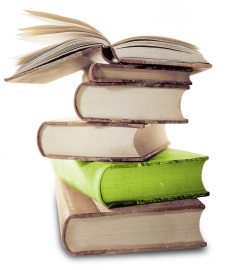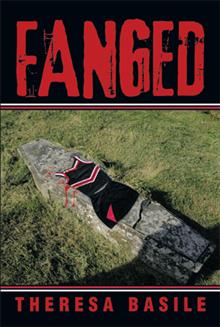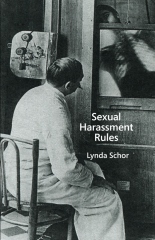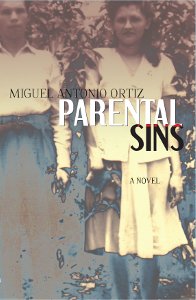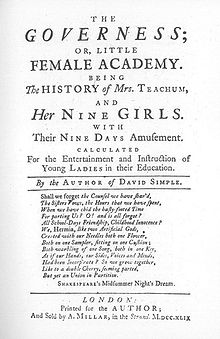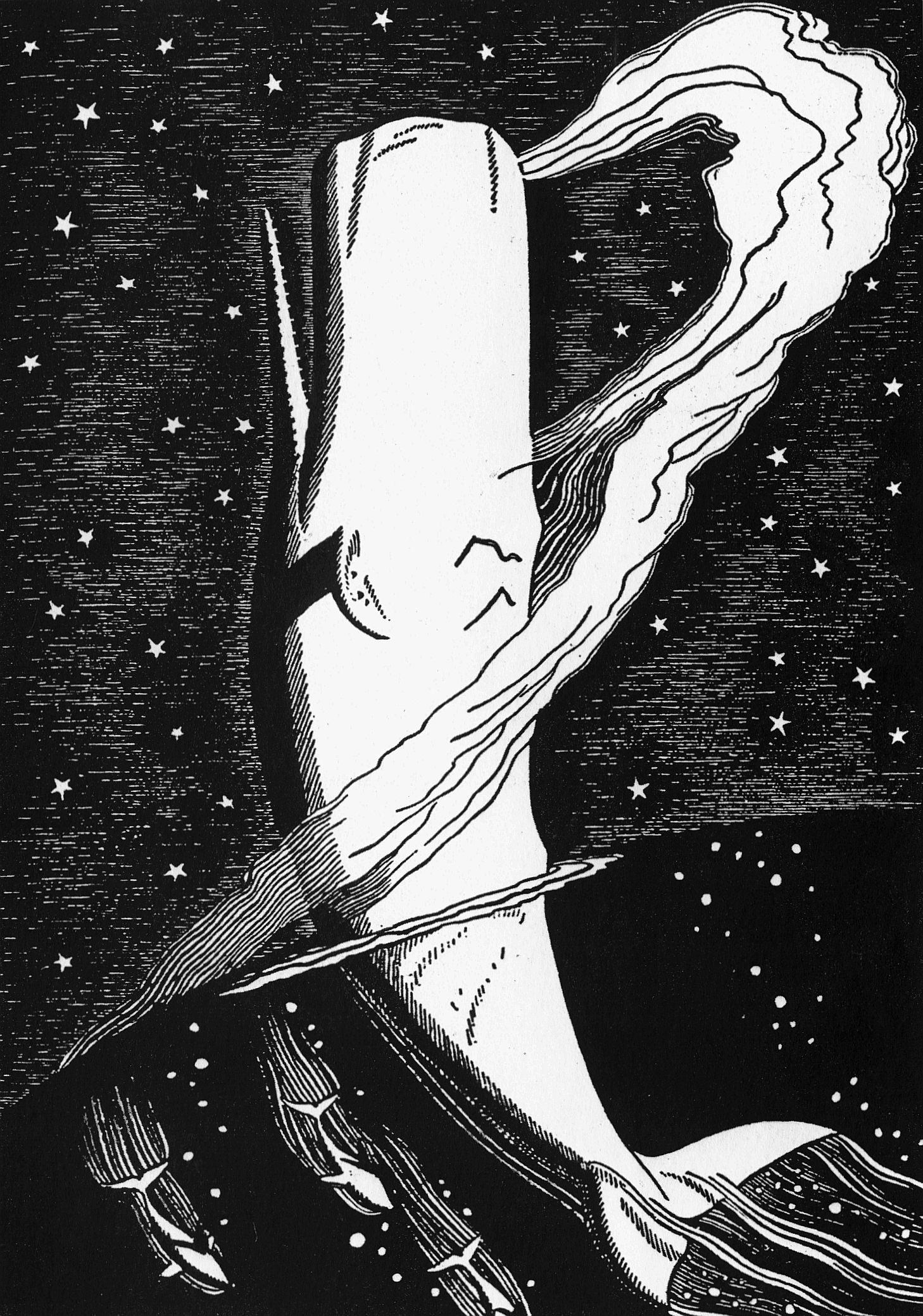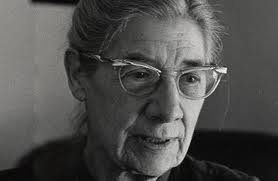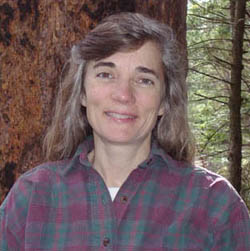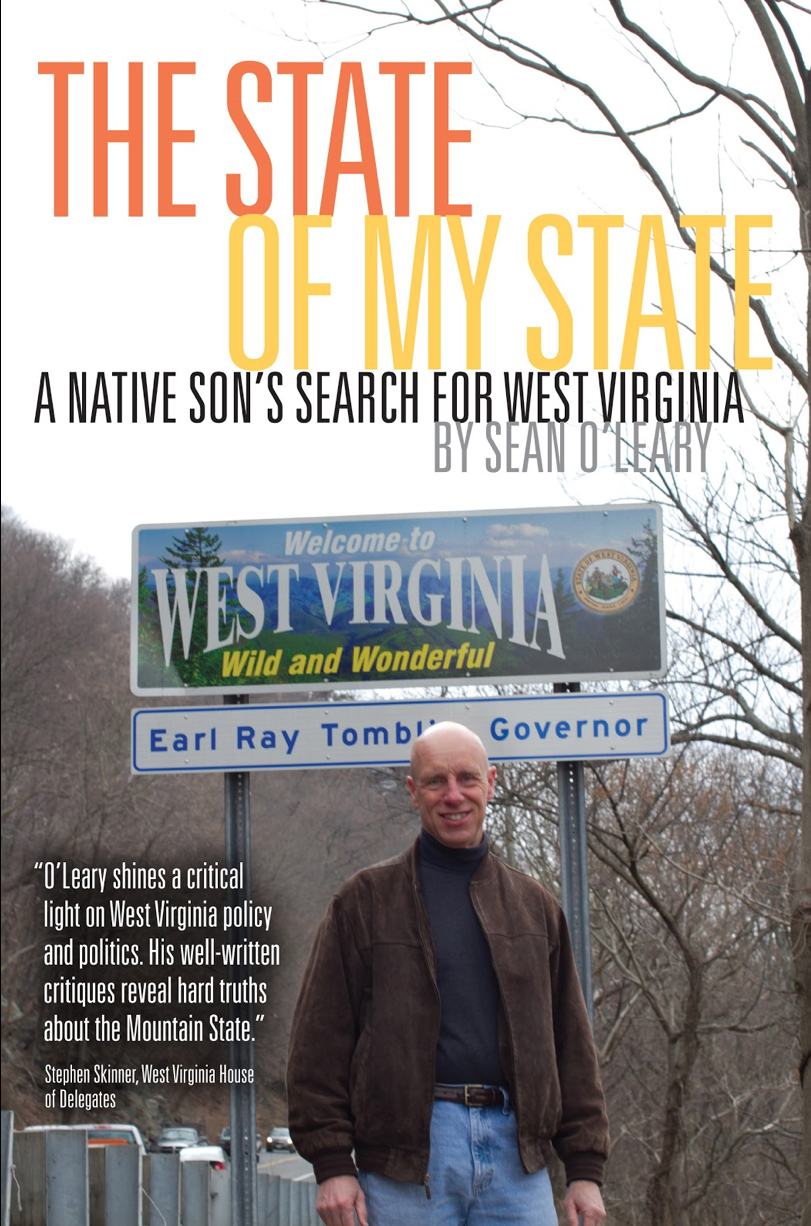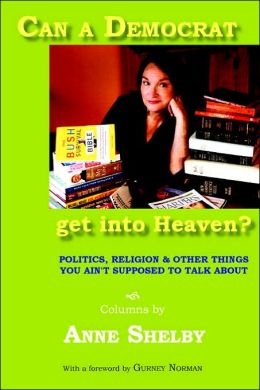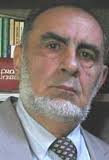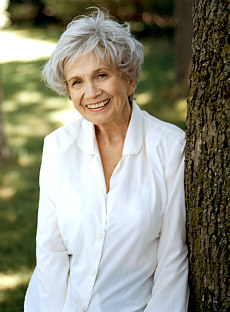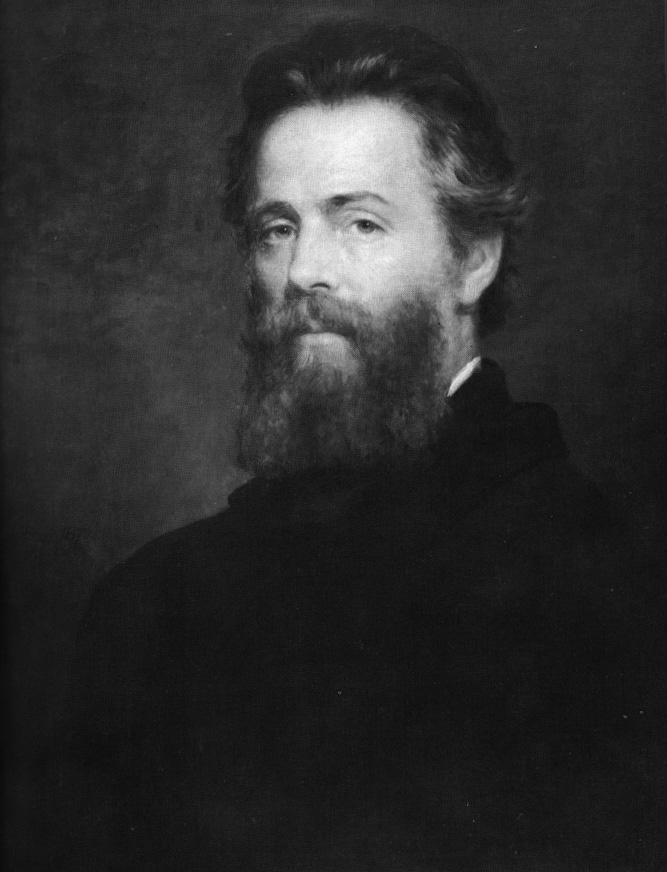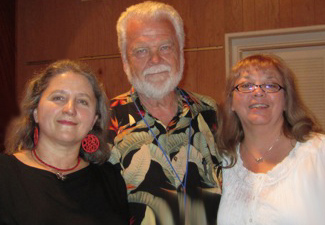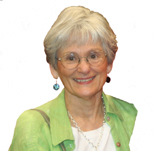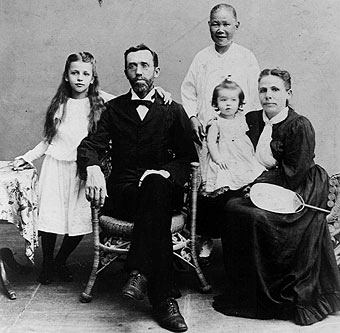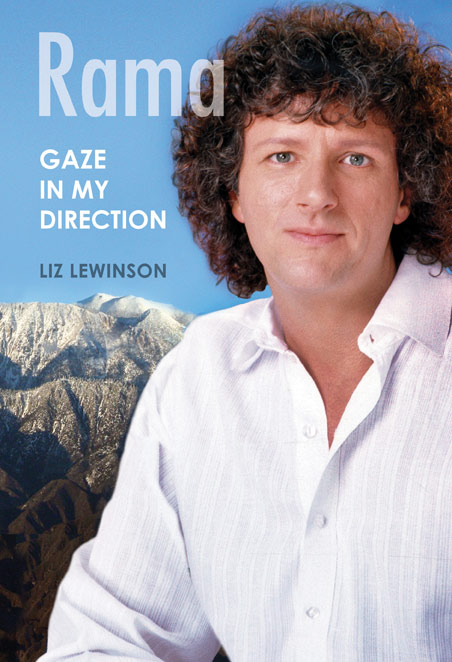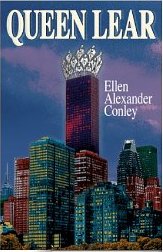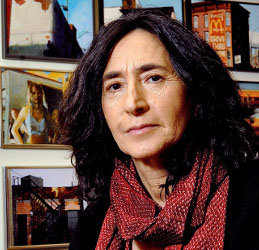Meredith Sue Willis's
Books for Readers # 166
December 16, 2013
Latest changes and corrections online MSW Home
In this Issue:
Guest Editor Eddy Pendarvis on a Rediscovered Book by Pearl Buck ;
A Word from the Sponsor; A New Novel from Miguel A. Ortiz;
Lynda Schor's Sexual Harrassment Rules; Theresa Basile's Fanged;
More on Moby Dick; Poems by Janet Lewis; The E-Reader Report with John Birch;
Things to Read Online; Announcements; Backchannel on Doris Lessing's Death
Free e-mail subscription to this newsletter.
To create a link to this newsletter, use this permanent link .
For Back Issues, click here.
A Word from the Sponsor:
It's not too Late for an E-book Holiday Gift!
Meredith Sue Willis now has seven books available in all e-book formats. They're economical and easy to give. For some recommendations on choosing, Click here.
To give books, click on the image above. Or, to buy a Kindle book as a gift, go to the book's page on Amazon and click the "Give as a gift" image. To give as a gift on Nook, go to the book's page and click on "Buy as a Gift." For all other formats, go to https://www.smashwords.com , search for "Meredith Sue Willis," click on the book page, then click on "Give as a Gift."
Needless to say, all the big commercial guys are selling e-books too, and you can even purchase e-books and support your local independent bricks-and-mortar bookstore!
For teens or anyone who likes science fiction and fantasy, consider The City Built of Starships.
Fiction with an Appalachian background includes A Space Apart, Higher Ground, and Out of the Mountains.
Family-focused literary fiction includes A Space Apart and Dwight's House and Other Stories.
The Blair Morgan Trilogy, Higher Ground, Only Great Changes, and Trespassers, is a story of growing up in the nineteen sixties from a West Virginia girl from small town to community organizing to radical political activism.
I'm reading several Pearl Buck books in preparation for a mid-2014 presentation. Buck, although few know it, was born in West Virginia, although taken to China as an infant. She spent much of her life in China, and her most famous books is no doubt The Good Earth, which I'm very fond of. I also enjoyed Buck's memoir My Separate Worlds. She also, however, wrote a tremendous number of pot boilers. Below is a review of one of her rediscovered novels by guest editor Eddy Pendarvis.
-- MSW
GUEST EDITOR EDDY PENDARVIS ON PEARL S. BUCK'S REDISCOVERED NOVEL
THE ETERNAL WONDER
The manuscript for this novel was found in a storage bin in Fort Worth, Texas; and as a Pearl buck fan, I wish it had stayed there. To me, this posthumously published book fails artistically. It's a coming-of-age story in which the hero never really comes of age.
Rann is a gifted child—he can count objects by the time he's two years old and read by the time he's three. He's happy to please his mother and his father, who laugh and clap their hands over his accomplishments. When he starts school, the thirst for knowledge, so applauded by his parents, sets him apart from the other children. Rann finds school a lonely and boring place, and his concerned father, who's an English professor, starts a special class on the college campus for Rann and some other gifted children. By the time Rann's twelve years old, he's able to pass the college entrance exam.
So far, so good. Rann is likeable enough as a toddler and child. It's when his dad dies of cancer that I start to lose sympathy for him. At his father's death, the boy asks himself, "Who will tell me the truth about everything or where to go to get the truth? Who will help me to know what I am and what I ought to be?" He considers himself to have "outgrown" his mother. In fairness to him, I have to admit that she does fill him mostly with food, personal advice, and anecdotes about family. He and his mother reflect the sexism that Buck despised. Not from this narrative, however, would readers know Buck found anything wrong with the gender stereotypes played out by Rann's family; their roles are presented as natural and harmonious. Rann's absorption "in the problem of himself and what direction he should give himself" becomes more and more prevalent as the story develops. He's like one of those bright, overly indulged, self-involved teenage boys who today would be misdiagnosed as having Asperger's syndrome. Rann's stilted manner of speech, which contributes to his sounding precocious as a young child, makes him seem disconnected and priggish as a teenager and adult.
Enrolled in college at thirteen, he makes only one friend, a psychology professor, a man from whom he hopes to learn a great deal; but their relationship leaves Rann upset and worried about his own sexuality. A less abrupt end comes to his relationship with a lovely widow, who helps him resolve his fears about his sexuality. The professor and the widow are presented as caring about Rann, but their actions are predatory, given his youth. Rann finds more suitable mentors, first his grandfather, and then a young Chinese-American woman and her Chinese father; but these relationships are short-lived as well. During military service in Korea, Rann writes a novel, set in that country. The novel earns him literary success in the United States, and shortly after his return to New York, he is at last able to answer the question of what he should be—a writer and philanthropist.
Unfortunately, absorbed as he has been in "the eternal question: what should he be," he seems to care more about dedicating himself to something important than he cares about people. Though the other characters in the book describe Randolph Colfax as singular in intelligence, imagination, and creativity, nothing Rann thinks seems singular in anything except in insularity from others and vague sense of superiority over them.
Buck's genius shows in a few elements of this story. One of the more poetic devices is her imagery of snow at important junctures. Since Rann himself seems almost frozen emotionally, when snow falls, there's a sense of release in his or another character's feelings. The first half of the story, about Rann's childhood and early teens, is interestingly structured to match the theme of Rann's quest for knowledge. He, like the main character in a children's story, goes from one person to another asking the same question and getting an unsatisfactory answer (think of Dorothy, in The Wizard of Oz, or the baby bird, in Are you My Mother?). Too, for some readers, the autobiographical elements in the story will be fun to spot. In addition to obvious parallels between Rann's and Pearl Buck's careers are many small touches, such as a statuette of Quan Yin, goddess of mercy, one of Buck's favorite religious figures; "Mr. Kung," probably named after Buck's tutor; and an heirloom clock from the Netherlands, reminiscent of the clock built by Buck's Dutch grandfather. For most readers, though, I recommend picking up almost any of her other novels— including her only other posthumously published novel, The Rainbow—instead of this one.
SHORT TAKES (by MSW unless otherwise noted)
Parental Sins by Miguel Antonio Ortiz
This moving novel is the portrait of two main relationships and many peripheral ones. It is about people in a moment of flux: moving from the country into town, moving from the land to hired work, moving from Puerto Rico to New York's Bronx and the Barrio.
The characters are all thoughtful people, and one of the delights of the book is following their consciousnesses as they consider their problems, often coming to the brick wall of what they see as fate or what has to be. For the women, this including the sexual wanderings of men.
One of the men, Juan, is particularly interesting and sad. He sets his sights on one beautiful woman, Ramona, and waits for her and courts her for five years, and finally marries her. Unlike all his brothers, he does not have affairs. He and Ramona have children, they move to New York. He takes classes and reads books, but his financial stability is undercut by his desire for material goods like beautiful furniture, a refrigerator, a car. Ramona, his wife, worries about money and becomes estranged from him. At this point Juan at last fulfills the destiny of the men of his family. He has another woman, and she conceives a child.
The ending moves the spotlight to Ramona and what she does when she finds out, which is at once yielding to fate and at the same time taking action in a way that is perfectly individual and wholly loving and graceful. What I probably love best, next to this quiet, satisfying ending, is the deep intelligence of people who examine their lives in a way that is in some ways unfamiliar to me yet resonates deeply.
Whether you are into vampires or not, I predict you will enjoy Theresa Basile's Fanged . This novel has real human emotion as well as dark humor and lots of action. The story follows a group of teenagers, especially Sean the sixteen-year-old vampire. Sean just wants to finish high school, but blending in isn't easy: two vampires in his group can't stand him, he's barely passing math, and Becky, the pretty cheerleader, smells a little too good to him.
Still, with the help of his best friend Hannah, the group leader, he manages to fly under the radar and keep out of trouble-- until the junior class president is found dead under mysterious circumstances. Then the truce among Sean and his fellow vampires falls apart, and each person reveals a secret that could threaten their lives. Meanwhile, Sean tries to control his hunger. Will he be able to turn over a new leaf, or will the temptation for Becky's blood be too strong to overcome?
The Governess by Sarah Fielding
Yes, it's Henry "Tom Jones" Fielding's younger sister, and this weirdly entertaining little 18th century book (available free from the Gutenberg Project in most digital formats) is probably the first book written directly for children-- for girls, in fact. It is about a group of delightfully jealous and squabbly students in a school where the main course of study is an ideology of love and unselfishness.
The girls prove to learn best through story telling. The oldest student, rather than the official teacher, gathers the girls around and tells entertaining, didactic tales of giants or the summaries of the plots of dramas.
The book is tendentious to a fault, of course, but while the official objective is to create little angels-of-the-house, the writer recognizes and delineates the essentially ambitious and envious nature of the various girls. One hates it that her brother gets all the privileges; one just frankly wants all the pretty things to wear and good things to eat.
Take a look at it, and forget the message and enjoy the fun of learning the eighteenth century ideal of girlish behavior: Always ask your elders first. Be loving! And if you can't be loving, at least pretend to be NICE.
Sexual Harassment Rules by Lynda Schor
Another excellent collection of stories from Lynda Schor– funny, but also a serious look at how people use and abuse sex. What remains for me, when the book is finished (and it goes so fast!), is a wry sense of how absolutely hilarious human beings are, especially when they're trying to have sex. Some of the stories are typical Lynda Schor forays into the happily bizarre, and others are more or less realistic-- like the story of a sort of relationship between a young art student at Cooper Union and her professor ("The Highest Grader of All"). There's a nice foray into a young student's fantasies about what he'd really like to do to his female writing teacher ("Teacher Evaluation.") Teaching takes a hard hit throughout the book, including "Poet in the Schools," often playing off the passion, not always suppressed, between the mentor and the mentee.
Some of the stories are highly experimental, with short sections, most of which are images rather than paragraphs. Nothing is hard to get, though, and two of my favorite pieces are selections from a faux blog called Writing Advice Blog. In "Sentence Wrangling," the fictional blogger describes how her sentences have been criticized, and she tries to improve them, but gradually loses control of the little critters, and they eventually form a concatenation and loop around and knock her out of her chair.
There are plenty of orgies and explorations of what is and isn't harassment and what is actually titillating and what's not. There is never a dull moment, but neither are the stories ever less than a serious examination of how we yearn for love and have sex-- and fail to be satisfied.
RESPONSES FROM READERS
JANE LAZARRE writes, in response to "the reader who spoke of MOBY DICK being boring, who wondered if there were metaphors somewhere inside this classic American novel (see issue # 165)....To this reader and any other interested in the novel, I recommend highly reading a long, brilliant essay by Toni Morrision called 'Unspeakable Things Unspoken,' in which she theorizes densely and deeply convincingly about the making of the literary canon and how race, and the absence of race, fits into forming and sustaining it.
"Then she launches into an incredible analysis of MOBY DICK, providing us with Melville's intimate connections to race in America at the time, as almost everyone was. It was like our following of the congressional budget/policy fights today, only more so, even though there was of course only print to follow. Slavery was at its height, the Fugitive Slave Laws (now being introduced to wide audiences, in all their cruelty, through the much admired movie, Twelve Years a Slave,) were in effect, and Melville's own father-in-law was a judge who had upheld the law. This law furthered the ideas of white supremacy to the point of saying there could be no escape from slavery, as there had been before, as Blacks were property by nature and law for lifetimes and over generations.
"Melville himself was anti-slavery. The famous chapter called 'the whiteness of the whale' is, in Morrison's compelling argument, interpreted as a dissertation not on the evils of whiteness as a skin color of all people who were not Black, but as an ideology, an ideology of white supremicy that was used to preserve the slave system and its evils, and is still very much with us today in various forms. There are many other details of her interpretation that are fascinating, beginning of course with the first line and the use of the name Ishmael -- but I hope readers will consult her directly in this classic and important piece of American literary criticism. It is illuminating to anyone interested in understanding our literary history, indeed any American interested in the realities of American history."
Read the Morrison essay online here.
(Image above is of a wood cut by Rockwell Kent)
MARC HARSHMAN, Poet Laureate of West Virginia, writes: "I've always been a big fan of Janet Lewis as a poet though have never, ashamedly, read the novels (review of her trilogy of novels is in Issue # 165). Regrettably, she's been neglected as both poet and novelist in recent years; at least, that's my take. So it's great news to see Ohio University's Swallow Press re-issuing these. Here's one of her short poems."
Melissa's Garden
Rose, and rose-of-Sharon,
Crimson, and shadowy mauve;
Entangled foliage of varying patterns;
Trumpet vine. Gabriel himself
Could not have blown
A more resplendent horn,
Of earthly orange flawed with gold!
That one small garden
Should yield such treasure,
Thanks be to God, at noon, at dawn.
-- Janet Lewis
Thank you Marc! And here's another Lewis poem I found:
Austerity
I have lived so long
On the cold hills alone ...
I loved the rock
And the lean pine trees,
Hated the life in the turfy meadow,
Hated the heavy, sensuous bees.
I have lived so long
Under the high monotony of starry skies,
I am so cased about
With the clean wind and the cold nights,
People will not let me in
To their warm gardens
Full of bees.
THE E-READER REPORT WITH JOHN BIRCH: GET A FREE E-BOOK BEFORE ITS OFFICIAL PUBLISHING DATE!
If you've got a Kindle, and are one of those people who like to be the first to read a newly-published book or see a movie before everyone else, here's an interesting offer. Every month, Amazon will offer you, for free, a choice of one title from a list of four books before their official publication date. The book will be yours to keep and read on any version of Kindle, from the clunky early models to the streamlined Paperwhite and the latest Kindle Fire. The first selection is a mainstream novel, a romance, a mystery and an inspirational story.
See: www.JohnBirchLive.blogspot.com -- a growing collection of nearly 30 short stories, articles and essays.
BACKCHANNEL ON DORIS LESSING
Doris Lessing died on November 17. Backchannel writes to remind us that there is an obituary, with some discussion of her work at The Guardian. "She was in the political thick of it. Her writing is unusual; the way it fuses the personal with the political. One of the very few authors who wrote literary fiction as well as sci-fi...."
Backchannel also mentions a follow-up appreciation of Lessing by Margaret Atwood that mentions the trick Lessing played on the publishing world by submitting a manuscript under a false name to prove the point that unknown writers are treated unequally. Atwood says, 'Her celebrated experiment with a pseudonym as a demonstration of the hurdles facing unknown writers being just one example. (Her "Jane Somers" novels were reviewed as pale imitations of Doris Lessing, which must have been a little daunting for her.)'
"Can you imagine," says Backchannel, "how weird it'd be when critics say your novel published under a false name is but a pale imitation of the lauded work you've published under your real name? And I'd be so embarrassed if I'd been one of those reviewers."
A LIST OF THE HUNDRED "MUST-READ" BOOKS ON BLACK EXPERIENCE
I got this link from a writer's facebook page, and it's an interesting list indeed: https://www.listchallenges.com/100-must-read-african-american-books?ref=share .
A LIST OF BOOKS FOR EXTREME READING-- HARD BOOKS!
It includes Moby Dick and some others that are longer rather than harder, but fun to think about anyhow:
https://flavorwire.com/423424/50-incredibly-tough-books-for-extreme-readers/view-all/
BOOKS RECEIVED
Coming in 2014: For the Living Dead: New and Selected Poems by Eric Greinke has just been published by Presa Press in Rockford, MI. (https://www.presapress.com/)
TO READ ONLINE
Thanks to Dreama Frisk for this interesting piece about living in a new language.
A writer explains why she is choosing self-publishing over a contract with a big 5 publisher, with financials to explain her decision!
Ann Pancake has an excellent article about writing a political novel in the Georgia Review online at https://garev.uga.edu/fall13/pancake.html .
The Complete Review: A Literary Saloon Site of Review
ANNOUNCEMENTS, NEWS, CONTESTS, WORKSHOPS, READINGS ETC.
A new magazine on global women's issues, VALERIE, is a digital effort by two Columbia j-school alumnae. It launched November 1, 2013. Read an article about it here. They are looking for appropriate non-fiction, memoir or travel writing. Write to Editors@valeriemag.com .
Victor Depta's new book The poetry in Poems: What Love Is can best be described as performance pieces--Appalachian folk voices which an audience can respond to the humor of--then formal poems--often ballad-like, and rhymed and unrhymed shorter pieces, which are subtler and more subjective in tone. The subject is love in its many guises: romantic, filial, parental, intellectual and mystical. The need for love, and its often unrequited consequences, is the subject of Poems: What Love Is.
Deborah Clearman's short story "Bomb Test" in the NY Writers Coalition's anthology of poetry and prose WHAT IF WRITING IS DREAMING TOGETHER?
Crystal Wilkinson has a new short story available as a Kindle digital single, "Holler." It begins, "Turn left where Otha’s one-room store used to be and the poplars get thicker, drive past Mt. Zion Baptist Church and across the concrete bridge and on up the holler. You’ll be able to see Green River if you stretch your neck but don’t expect something out of a picture book. It’s brown, plumb full of mosquitoes, water moccasins galore. Go to the end of the road and on up the hill a little and this is Mission Creek--this is where we live. You might not expect to find black people in the mountains, not many of us left, but we’re here. Keep going until the road levels out a bit and the gravel gets more scarce and turns to dirt, go around the bend and soon you’ll see the graying heads of black men nodding as you pass, black children playing Red Rover, black women hanging sheets on the lines. "
Phyllis Moore called our attention to a book by newspaperman John Douglas called A Fog of Ghosts.
Learn about the latest Barbara Crooker poems: https://www.buddhistpoetryreview.com/issue-eleven/barbara-crookerDon't forget to get on this list for regular notices about open submissions at various literary journals and presses: CRWROPPS-B@yahoogroups.com
If you are in Northern New Jersey, learn about regular, excellent, free programs and peer workshops, many at the Montclair Library and environs. To get the monthly announcements, send an e-mail request to Carl Selinger at selinger99@aol.com .
Meredith Sue Willis's
Books for Readers # 167
January 15, 2014
When possible, read online for updates and corrections.
MSW Home
In this Issue:
Underworld;
Belinda Anderson's Witchy Wanda;
Anne Shelby;
Sean O'Leary;
Mathilda;
Dragon Keeper;
Carole Rosenthal on Janet Malcolm;
Recently Reviewed Books;
A Glance at Problems with Publishing;
A Word from the Sponsor;
The E-Reader Report with John Birch;
Vic Depta Poems;
Backchannel
Smashwords.com versus Bookbaby.com;
Announcements;
Free e-mail subscription to this newsletter.
To create a link to this newsletter, use this permanent link .
For Back Issues, click here.
A Word from the Sponsor:
Available January 20, 2014!
Meredith Sue Willis's first novel to appear as an e-book
before it is a hard copy! Check it out at Foreverland Press:
The narrator of Meredith Sue Willis’s engaging new novel has just turned forty, quit her job, been jilted by her live-in boyfriend and suspended by her therapist for nonpayment. Martha plunges into a personal meltdown the way some people plunge into a bag of doughnuts. Against her better judgment, she takes a job at a settlement house known as “Love Palace” in a run-down community that is about to be razed for urban renewal.
There Martha discovers that she has a talent for managing the dysfunctional institution and its staff. She is attracted by the charismatic reverend who oversees Love Palace as well as by Robby, one of the staff members, who is rich, handsome, recently released from a hospital after a suicide attempt, and intensely ambivalent about his sexuality.
Along with the Love Palace crew of runaways, derelicts, struggling blue collar workers, a former Black Panther, and many others, Martha has to deal with her ex-hillbilly mother, who favors shoulder pads and big hair; her sister the big-shot lawyer; and her dying Jewish grandmother.
On my break between semesters I've had a lot of fun reading, including one book off the "extreme reading" list . This list is in many ways strange-- some of the books are long old classics (Canterbury Tales, Clarissa, War and Peace, ), and others are older modernist classics (To the Lighthouse). Then there's Pynchon and Gaddis's J.R. and of course Finnegan's Wake. It made aware of what I've avoided: the late twentieth century Long Book writers especially ,(Pynchon, Gaddis), but I decided to read Don DeLillo's Underworld from the list, and then, for treats, read some children's novels and dragon novels.
Underworld is in large part really stunning. The sentences are amazing, and there are a lot of excellent scenes, and I really loved all of the 1950's growing-up-in-the Bronx parts. That is probably less than 400 pages of the 800 pages in the book.
The main character is Nick Shay who grows up to become a Phoenix based waste control manager who owns (for carefully explained but ultimately random reasons) the home run ball from the famous 1951
Giants-Dodger's game, the "shot heard round the world." There are many characters and materials peripheral to Nick, and much of it works well. The various references to the Atom Bomb, the bombed out South Bronx, radiation sickness, graffiti art, and various other Important Topics are treated-- to my taste-- portentously, which more than once slides into pretentiously. There are extended metaphors like the computer imagery in the epilogue in which a retired teaching nun dies and goes to cyberspace. That part was just irritating: the computer imagery felt outdated which none of the major story lines did.
Let me step back here with a little caveat emptor. I'm always jealous of the adulation accorded the Guys who write Big Books, and I also tend to be suspicious of a certain post modernism that seems to insist on its own bigness just to prove how great it is, and post modern, and big. Underworld at its heart seems to me to be the story of how a boy from the streets became a solid if tortured citizen in a particular time and place. Everything else is back story and decoration.
Which isn't to say that the decoration isn't moving and wonderful. I especially liked the appearances of figures like "Jedgar" Hoover and Lenny Bruce, and found Hoover oddly sad and Lenny Bruce's peripatetic night club appearances a clever way of bringing various cities into the story. I liked much less the radiation deformities and murdered children. They felt added for seriousness and bigness and epic quality. Or perhaps there to screen the writer's honest nostalgia and his fairly simple main story lines.
My favorite character (not counting Jedgar) is Bronzini, a cuckolded school teacher and chess mentor, who is a Walker in the Bronx: every afternoon after school, he wanders around, talks to the old guys, has a drink here, makes a joke there. He enjoys his world with his senses and his sadness and his appreciation and sensitivity. He's a wonderful character, but he's part of the Bronx story, and, again, everything in the streets and tenements of 1951 Italian Irish Bronx is terrific.
Other parts just got tiresome with their long efforts to make the familiar unfamiliar, as if observed for the first time. Overdone, this kind of dense description becomes bombast if not logorrhea. Am I just confronting a great fin de 20th siècle monument of literary culture and trying to hack at its clay feet? Honestly, I think It would have been a wonderful novel at one third the length.
So, very refreshing, after Underworld to turn to a crisp, fast moving children's novel, Jackson VS Witchy Wanda: Kid Soup by Belinda Anderson. This middle grade novel has my new favorite villain, Wanda Lovecraft who is optimistic and upbeat and determined to feast on the local children. Jackson, the hero, is her equal in determination, although not in good cheer. His life isn't easy, even without Wanda. His parents criticize him for all the wrong reasons, and he doesn't seem to have any friends.
There's a bully who's after him, of course, but my favorite thing about him is that he wears a hearing aid and occasionally loses a word or misses something important. Poor Jackson, smart but not honored for it, constantly misunderstood, and forced to eschew sweets because they make him smell attractive to Wanda.
Meanwhile, Wanda pops up again and again like the repeated appearances of the mole in a whac-a-mole game. Time after time poor benighted Jackson thinks he has bested her, but she comes back to torment him and try to eat him and his friends.
But the good news is that Jackson finally has some friends and allies. This happens as he keeps trying to save the children and defeat the witch (without telling any adults, of course) and also without using violence. He ends up with at least three friends plus a cat and a deeper relationship with his possibly demented but maybe just shell-shocked grandfather.
One of my favorite moments, though, is when Wanda argues that she is simply a predator: she eats children, and occasionally road kill and rodents, but she insists she's no different than the kids when they eat a hamburger. It's an argument that has appeal, especially when put forth by such an enthusiast. Of course, in the end Wanda is finally defeated– but with just enough wiggle room that there might be a sequel, which I, for one, look forward to.
I also gobbled up (shades of Witchy Wanda) a tetralogy of dragon novels by fantasy queen, or at least duchess, Robin Hobb: City of Dragons, Blood of Dragons, Dragon Keeper and Dragon Haven. The first one,
Dragon Keeper, blew me away and had me buying the others, on Kindle, and I liked them, but like many of these series, the first one is best. Sometimes the stories drift, there is unfinished business, changes of direction. She minimizes battles and gore (which is good or bad depending on taste), but I'd say this makes the violence stronger when it occurs In one section from a particular character's point of view, he gets his leg eaten by a dragon, followed by the rest of him.
The dragons are terrific: they remind me of parakeets: affectionate, but also likely to nip-- that is to say, tame but not domesticated. To this undomesticated quality, Hobb adds great intelligence and beauty, and I'd say the dragons are more interesting characters than the people.
There are a lot of good concept fantasy bits: there ships that are alive in a certain way (and she has another series about those "liveships"). There is a nice idea of how people who live near dragons are "changed" and given scales and wattles.
Hobb writes a lot, as required by her profession and her fans, and sometimes writes thinly, throwing away one interesting thread in order to follow a new idea. This makes for easy reading, but towards the end of the fourth book I was feeling like a kid the morning after trick-or-treating.
I also wanted to draw everyone's attention to collections by two witty Appalachian columnists: The State of My State: A Native Son's Search for West Virginia by Sean O'Leary and Can a Democrat Get into Heaven? by Anne Shelby.
Shelby, whose book has a foreword by Gurney Norman, is from Eastern Kentucky, and she has publish
ed many books of poems and books for children. She has also written for THE LEXINGTON HERALD-LEADER as well as for smaller local newspapers.
The crisp, funny pieces in Can A Democrat Get Into Heaven cover politics, religion and, as she says in her subtitle, "Other Things You Ain't Supposed to Talk About." Some of the pieces almost read like short stories, such as one called "my pinion bout the lection," which ends "they will vote how they are told to vote not me tho I am sticking to my beliefs I will haf to git payed."
A number of the pieces challenge anti-woman preachers using Shelby's r own deep knowledge of the Christian Bible, but other pieces are riffs on dogs and houses and memory. One of my favorites is about accents, called "Quit Makin' Fun of the Way I Talk." She says, "Once somebody comments on your Kentucky accent, it's usually not long till they're inquiring whether you own a pair of shoes or have sex with close family members. One man in Ohio asked me if I ate possum much. I about choked on my pasta salad."
Sean O'Leary's pieces were originally published largely in the Martinsburg Journal and Spirit of Jefferson, both publications from towns in the Eastern Panhandle of West Virginia. O'Leary is a playwright and marketing
consultant from Harpers Ferry, West Virginia, and his essays are more formal, at least in word play, than Shelby's, but he is treating many of the same issues that all Appalachians deal with on a daily basis.
One article is called "Coal Was West Virginia." It challenges people in the state (which is, as I write, struggling with water spoiled by a coal-cleaning chemical company) to think about what is coming next, because, inexorably, change is coming.
He writes about West Virginia's gun plague and about West Virginia's favorite athlete son, Jerry West. He writes about the Marcellus Shale that is supposed to revive West Virginia's fortunes ("The Emperor Has No Natural Gas Boom.") He writes about giveaways to businesses in tax exemptions, credits and various subsidies while the population continues to be among the poorest and unhealthiest in the nation. He writes about West Virginian politicians, good and bad, and offers a view of my home state that isn't sanguine, but is full of love.
Keep up with O'Leary's current work at www.the-state-of-my-state.com.
I also want to mention a memoir, Shake Terribly the Earth by Sarah Beth Childers. Early on in this
collection of memory pieces Childers comments on memory and story telling by saying, "I sit and listen, like the robin in the dogwood, gleaning nuances from each telling of each story. Each self-contradicting version builds a broader space where the truth can reside, but the truer truth lies in the telling." Lovely lines, and the collection is deeply self-aware and articulate about storytelling as an art and as a profoundly human means of creating meaning.
The book is also an informal study and narrative of the fundamentalist Christian community in West Virginia in which Childers grew up, and, of course, of her family. She writes, "With faith, you don't need everything else to make sense. I am still Pentecostal. I can't give up the mystery." I was repeatedly moved by the losses and failures and also successes of this extended family. The mix of a particular approach to religion with the quotidian vicissitudes of growing up is well created.
A passage in the essay called "Shake Terribly the Earth" captures the combination of personal and cultural. The narrator is involved in a painful and embarrassing relationship with a boy she never meets. He is clearly playing her, setting up dates he doesn't keep, promising phone calls (via Face Book) that he never makes. In the midst of this highly personal material, she writes about how waiting, as she does for this no-show boyfriend, is valued in her culture: "My home and Pentecostal church were filled with sojourners in the wilderness, wanderers just outside the Promised Land. My mom waited to escape her chronic illness and to buy a house with more than one bathroom My mom's best friend waited for her teenage daughter to walk, speak, and think normally, free of the cerebral palsy that had struck her as a newborn." Through its stories and personal witness, the book gives deep insight into how one type of religion informs everyday life. The pieces get stronger and more closely woven as the book goes on, and it is a worthwhile and fascinating collection.
SHORT TAKES (by MSW & Others)
In the mood for children's books, I also read a classic for kids I had missed: the redoubtable Roald Dahl's Mathilda. The only thing really standing in my way as an adult reader was how short the book was. One of the things I like so much (that I tried to do without much consciousness in my first Marco book, and not nearly so neatly) is that Mathilda's magic is a mere brief passage: real within the confines of the book, but over and done with by the end. Mathilda is still a genius, but no longer a genius who can do magic. No wonder Dahl is considered one of the best the best.
Carole Rosenthal writes: "For my birthday I was given ALICE AND GERTRUDE, by Janet Malcolm, of whom I think highly. Looking forward to reading that. My two favorites by Malcolm are long essays, one called 'In the Freud Archive,' (wonderful!) and also one on Ted Hughes and Sylvia Plath called 'The Silent Woman' (fascinating). Highly recommended if you haven't read them. Malcolm has such a keen, clear, and penetrating mind, the absolute best of journalism, much more than journalism. I miss her long, long and thoughtful pieces that used to be in the NEW YORKER. Her shorter pieces (I have two collections of them) are always interesting and provocative too, but not as much as the longer ones. My favorite in those collections is the longest essay–it is both collections–called 'A Girl of the Zeitgeist,' about Ingrid Sischy, the youthful editor of ARTFORUM who articulated and changed the art world's view of art's social function in the late 70s and early 80s."
FROM BLAIR MOUNTAIN PRESS
Victor Depta's latest book POEMS: WHAT LOVE IS includes the following poems, which are my evidence for why you should get the book:
What Loving a Baby Is
He wasn't a cartoon baby—a miniature body with a big, round
head, chick-fuzzy hair, big eyes, a tiny nose and a small,
pouty mouth—he was miniature all over, sort of scalded
and bloated looking, small-headed and with puffy, squinted eyes,
mostly all belly like a watermelon with wiener arms
and legs, toes hardly bigger than peas and fingers like short,
stubby rolls of clay with incredibly tiny, perfect fingernailsand I don't think it was just my brutal, selfish genes battering at
my ribs, trying as the country song says to break down
the door of my heart—it was more like ET's beginning to glow,
or Yoda levitating Luke's skycraft out of the swamp, my
chest emptying out and swelling like a helium balloonand I don't think it was just what the neuroscientists say, that I
was having a small surge of adrenaline and a huge, ocean
swell of serotonin and oxytocin so that my natural, dopy
high was better than anything on Ecstasyit was more like Plato's sweet Form, lonely up there in its
glorious, transcendent, immeasurably perfect, eternal
immortality—it was Love descended and made a habitation
of my heart.
The Flaws in a Love Poem
Odd, nowadays, how a poem has to have a blotch
some greasy french fries in it, a beer can
a siren, smog, a gunshot—something real
but not on a football field
where certain humansin an arbitrary designation of time and space
enact the destiny of an odd-shaped ball
and nobody drags the wailing wall or the national deficit onfield—
if the comparison seems farfetchedthink, then, of an acetylene torch
a girl in an abortion clinic, a boy in love with a boy
bewildered by the searing in their chest
the darkness, the blue flame, the sparks
during the welding of their hearts.
Blair Mountain Press, 114 East Campbell Street, Frankfort, Kentucky 40601 502-330-3707
https: www.blairmtp.net
DON'T FORGET: FINE NOVELS REVIEWED IN PAST ISSUES
Parental Sins by Miguel Antonio Ortiz (see review )
Fanged by Theresa Basile (See review)
Sexual Harassment Rules by Lynda Schor (See review )
THE E-READER REPORT WITH JOHN BIRCH: Best seller lists
For this issue, I've taken a look at the New York Times weekly lists of best sellers. From these I've singled out the e-book fiction and nonfiction titles that have appeared for the longest number of weeks. These are culled from the Times' list of combined print and e-book best sellers. The numbers next to the author's name indicate the book's position in the current best seller list, and the numbers in parentheses indicate the number of weeks each has appeared on the list. You may want to check some of these out.
Fiction
Doctor Sleep by Stephen King. Currently 7th (13 wks)
Inferno by Dan Brown. 10th (22 wks)
The Longest Ride by Nicholas Sparks 11th (14 wks)
And the Mountains Echoed 13th (16 wks)
The Husband's Secret 14th (18 wks)
Ender's Game 15th (22 wks)
Nonfiction
Killing Jesus by Bill O'Reilly and Martin Dugard 2nd (13 wks)
David & Goliath by Malcolm Gladwell, 3rd (12 wks)
Unbroken by Lauren Hillenbrand 13th (138 wks)
Lean In by Sheryl Sandberg 15th (38wks)
See: www.JohnBirchLive.blogspot.com -- a growing collection of nearly 30 short stories, articles and essays.
BACKCHANNEL REPORT
Helium by Jaspreet Singh. Backchannel reports from a review that "the influence of Primo Levi and WG Sebald is strong in this richly intertextual novel exploring genocidal violence and the effects of the political on the personal." See https://www.theguardian.com/books/2013/dec/15/helium-jaspreet-singh-review .
Back Channel offers ideas about books in the coming year from The Guardian and draws attention to a review of a new Joyce Carol Oates novel, Carthage, which is priaised for how it portrays "the complex damage done to the fabric of a society by war – no matter how far away it is." Finally, Backchannel also draws our attention to an article on Book Banning.
A PUBLISHING PROFESSIONAL SPEAKS
A student of mine had a conversation with an ex-editor at a major New York publisher. "He started by reminding me," says the student, "that publishing a hardcover is very expensive. The publishers make money from selling hardcovers. There is a large profit margin there. But now the sales of hardcovers are decreasing while Ebooks are coming on stronger each year. The publishers haven't figured out, he said, how to make money from Ebooks yet. The profit margin is ridiculously small. And because they don't make money from this source, they don't market the books. Therefore, it seems, according to him, that they are staying with authors who have big reputations and can be relied upon to sell. The number of new authors they take on is minimal. I asked him if that meant I was engaged in an exercise of futility, and he said probably 'yes.' He also pointed out...that self-publishing on the net requires an enormous amount of personal marketing, and most Ebooks don't do well."
TO READ ONLINE
If you are considering self-publishing in e-book format, look at this article comparing two indie/self-publishing sites, Smashwords.com and Bookbaby.com.
ANNOUNCEMENTS, NEWS, CONTESTS, WORKSHOPS, READINGS ETC.
There's a wonderful article about writer Norman Julian and lots more in the current issue of Goldenseal: West Virginia Traditional Life.
Alice Boatwright's Collateral Damage (reviewed Issue # 157) is now out as an ebook! For more on Alice Boatwright, go to https://fictionaut.com/users/alice-boatwright .
2014 Marsh Hawk Press Poetry Prize–one submission, three possible awards! See their website at https://www.marshhawkpress.org/
An Afternoon of Poetry with Ed Davis– Ed Davis will read from his new full-length poetry collection TIME OF THE LIGHT (Main Street Rag Press) at 2:00 p.m. on Sunday, January 26, 2014, Wright Memorial Public Library, 1776 Far Hills Avenue, Oakwood, Ohio.
Looking for fiction submissions-- SOL Literary Magazine: English Writing in Mexico reports that it needs some fine fiction and/or flash fiction for the next issue, which will be online in March. Please click here to see past issues. If the submission rules look daunting, send your story directly to lynda.schor@gmail.com as a word attachment. Could be a story that takes place in Mexico, but not necessary.
Check out Savvy.com– news and services for writers.
Read the latest issue of the Saranac Review online at https://saranacreview.com/#sthash.y2vuoyd1.dpbs
A new magazine on global women's issues, VALERIE, is a digital effort by two Columbia j-school alumnae. It launched November 1, 2013. Read an article about it here. They are looking for appropriate non-fiction, memoir or travel writing. Write to Editors@valeriemag.com .
Don't forget to get on this list for regular notices about open submissions at various literary journals and presses: CRWROPPS-B@yahoogroups.com
If you are in Northern New Jersey, learn about regular, excellent, free programs and peer workshops, many at the Montclair Library and environs. To get the monthly announcements, send an e-mail request to Carl Selinger at selinger99@aol.com .
Meredith Sue Willis's
Books for Readers # 168
March 5, 2014
When possible, read online for updates and corrections.
MSW Home
In this Issue:
Main Article: Catherine the Great and Clara Barton
Short Takes: Edith Poor, Mitch Levenberg, Jane Shapiro, Melville, Munro, & More
A Word from the Sponsor
The E-Reader Report with John Birch
Backchannel
Announcements
Rita Quillen's new book
Free e-mail subscription to this newsletter.
To create a link to this newsletter, use this permanent link .
For Back Issues, click here..
I like biographies best as an entry into history. It helps me to have a person to track through the thickets of
event and war. Catherine the Great by Robert Massie, which I borrowed as an e-book from the library, took me into central Europe and Russia in the eighteenth century. Massie became a popular historian of the Romanov family of Russian royalty because his own child was a hemophiliac, and he started reading about the hemophiliac son of Nicholas and Alexandra.
Catherine the Great strove to be an enlightened autocrat: half her life she struggled to hold a precarious place as the unloved wife of a psychological mess, the great nephew of Peter the Great. Often out of favor, she read and studied. Never able to have enough of a relationship with her husband to get pregnant, she finally had a son almost certainly with a lover. This, however, appears to have fulfilled the dynastic requirement.
Then, when she was 33, she participated in a coup that overthrew her husband. He was quickly assassinated by her friends, although apparently not at her orders. She subsequently lived thirty some years as empress, trying to rule by convincing and building public agreement, yet always in the end turning to autocracy. She and Peter the Great (according the Massie) were the only really successful enlightened autocrats in Russia.
Catherine was smart and well-read, and had diplomatic skills. She also started wars, raised her favorites to government positions and made them rich. She censored writers and anyone else she was afraid of-- especially after the French Revolution which terrified her and every other crowned head of Europe. Yet she abandoned torture as a method of getting information, and early in her reign made a serious but abortive effort to rewrite the laws of Russia along Enlightenment principles. This would have included the slow emancipation of the serfs. She may have been as good as it got in 18th century Russia, but it was never very good, at least not for those not born in the upper classes.
Which is where most of us living today would have been.
It was, by the way, Catherine who seized the Crimea from the Ottoman Empire-- Crimea of the Crimean War and the present crisis in the Ukraine.
.
An extraordinary woman of a very different position in life was Clara Barton, whose given name was "Clarissa Harlowe" Barton, presumably after the heroine of the gargantuan novel by Samuel Richardson. I read A Woman of Valor: Clara Barton and the Civil War by Stephen B. Oates with deep engagement. 2013 was the 150th birthday of my home state of West Virginia, split from Virginia during the Civil War, and one of the earliest historical books I ever read was about Andersonville, the horrific prison camp in Georgia where union
prisoners of war were kept.
What is best about Oates' book is first his focus on Barton's part in the war. He summarizes her other accomplishments (founding a school, breaking the gender barrier at the patent office in Washington, D.C., making a living on the lecture circuit, founding the American Red Cross and more), but mostly he writes about her struggles to participate in the war.
He also makes a serious effort at portraying Barton's complexity. She went through major depressions and was not always easy to work with– she had major disagreements, for example, with Dorothea Dix, who organized nursing at large hospitals behind the lines of battle. Barton was a freelance during the war, giving succor to soldiers with shells falling around her. She was hugely brave, vastly energetic and enormously capable, and she was met with opposition at every turn by individuals, bureaucracy, and culture.
She based her right to go into the war zone on being single yet having a large family, so she was not needed at home. Indeed, when her father was dying and later when her older brother and her nephew were ill, she stopped public work for months in order to nurse them. This, of course, was how nineteenth century women learned nursing, and where their first allegiance was supposed to lie.
At the age of nearly 40, she determined that she was going to be a part of the union effort in the Civil War. She wrote appeals, she collected supplies--and finally broke through her own scruples about women's role as well as official opposition and went to the battlefields: She was at Second Bull Run, Antietam, Fredericksburg, and others, almost always working under fire
I said she overcame great opposition, but she also never lacked friends and admirers in government. She was also hugely popular among the rank-and-file, and for a whole generation man named their daughters after her. She went through periods of round-the-clock nursing and cooking and letter writing for the soldiers, then periods of inaction, depression, and sometimes near-paranoia. She spent four years at the great eastern theater battles, and also on the sea islands outside Charleston SC where she witnessed the brutal charge of the first "colored" regiment, the Massachusetts 54th, as it charged in what was essentially a suicide mission. Admiring these heroic fighters and getting to know other men and women, she became increasingly less racist and more abolitionist. When the war was over, she began systematizing the efforts of families to find missing soldiers. Her final war project was to get names on the graves at the notorious Andersonville.
Clara Barton made up her life's work as she went along, and witnessed and wrote about things that still freeze your mind: the amputations and the dysentery and malaria that killed more of the soldiers than battle. I can only admire how Oates used his historian's tools to bring me this foray into the Civil War following the trail of a great woman.
.
.
.
.
.
A Word from the Sponsor:
Newest Love Palace Reviews!
E-Book from Foreverland Press
Meredith Sue Willis's Love Palace available as
Kindle -- Nook -- iBook-- All Digital formats.
.
.
.
.
SHORT TAKES (by MSW Unless Otherwise Noted)
.
Voicework By Edith Poor
This is a small book, now available as an e-book, that works like a Montaigne essai,alternating short passages of quotation with the author's deeper examinations and arguments. Edith Poor looks at traditional perceptions of women's and men's voices, carefully delineating what is physiological from the cultural and psychological. She shows us how perceptions have shaped our public speaking and, in the case of many women in leadership positions, kept them from reaching their potential. In too many situations, the "masculine" style of speaking remains the ideal, even if women are the speakers. Edith Poor suggests that we can all– men and women– expand the range of our voices and make them more flexible for communicating what is important to us. She also suggests that we would do well to expand our hearing skills as well.
.
.
.
.
.
Write Something by Mitch Levenberg
This is a surprisingly engaging trip into the life and mind of a Brooklyn writer, particularly his public readings and his relationship to the other readers, the audience, and to his own stories. He calls the pieces, in his introduction, a collection of short essays, and they come mostly from his blog (https://mitchlevenberg.com/blog/).
The truth is that
I don't usually read prose about writing and the writing process: it's what I do and what I teach, so I like to read about cooks and bricklayers, or just about everything except writers. But this one is delightfully different, and I can't exactly say why. Partly it's that even though it appears on the surface to be self-referential (it's a writer writing about times he has read his writing), the sensation is of a deep sharp tunnel into a special world. There are hilarious passages about the other readers, who arrive late, spend too long flipping through their manuscripts, and the audiences who don't respond to a story that other audiences have always responded to. There are foods eaten and drinks drunk, and the delightful honesty of how the writer is sometimes moved by his own writing– and why shouldn't he be? If he isn't moved, how on earth could we be? Anyhow, Mitch Levenberg is clearly someone who can take absolutely anything his eye lights on and make that thing light up.
Small, sharp, and wonderful. An e-book only, so far.
Here's my review of Levenberg's short story collection in Principles of Uncertainty and Other Constants in Issue # 150.
.
.
.
Dear Life By Alice Munro
.
I don't feel much need to praise Alice Munro. She just won the freaking Nobel Prize.
I read this collection over a number of months, and I intend to reread a couple of the stories just to learn from her incredible ability to move a story from here to there and give the delight of surprise.
The book seems structured more or less from young main characters to older ones, and I liked the aged stories best. One, a nightmare of dementia, is called "In Sight of the Lake," a real chiller, at least once you are old enough to start imagining losing your mind. Another, "Dolly," also an aging story, is about a long time couple and a resurgence of jealousy and a slight resettling of the rules of engagement. Both brilliant.
.
.
Benito Cereno by Herman Melville
This was pretty neat: as usual with Melville in my experience, you have to get over the slow, tedious listings of names and information and documents-- probably fake but in this case based on a real incident. The novel works by having a rather naive point-of-view character tell most of the story. He is faintly uncomfortable with what's going on around him, but forces himself to ignore his discomfort.
And of course the real story is exactly what is under the surface.
It was published a few years after Uncle Tom's Cabin, but still pre-civil war, and it has always caused controversy over whether it was pro-slavery and/or anti-black-- or actually abolitionist. There is a powerful cultural racism at work-- but Melville isn't unaware of this as his rebelling slaves depend totally on the belief of those they interact with that they are incapable of what they've done.
Nothing is ever said explicitly in the rebelling slaves' defense– no monologue on the gibbet, no hint of the enormous despair they must have felt– yet the novella ends not with the first narrator, and not with the eponymous Benito Cereno, but with the slave revolt ringleader Babo, who, once caught-- after a constant, articulate running of the show, pulling the strings, asking the questions through Benito Cereno's mouth, signalling the other ex-slaves– clams up and refuses to speak again. He is silent on the gibbet, and his head is put on a stake and displayed, also in silence.
Ending with him was an exquisite narrative choice.
.
.
The Dangerous Husband By Jane Shapiro
This is a hyperbolic tale of mutual assured destruction in a marriage: the klutz husband expanded and expounded to the nth degree. He kills pets inadvertently, breaks the narrator's toe and arm. She plans to have him assassinated but it doesn't quite work out. She tries to run away from him and fails. It has some sketchy plot points (like how does she find that hit man?) but it is unlike anything else I've ever read.
I read it soon after pushing the Sisyphean boulder of Underworld up the hill, so the narrative momentum alone was a great pleasure. Part of the fun of the novel is its incredibly claustrophobic world of Brooklyn brownstones where everyone is a writer or other creative type– even the hit man only lives as far from their Brooklyn Heights place as Park Slope, and he's a novelist too. For more, here's the New York Times review.
.
.
Slaughterhouse Five by Kurt Vonnegut
A much shorter novel than I remembered, and I had also forgotten how much it was science fiction. It was a
favorite novel of the nineteen sixties, not nearly as popular now. The best parts are the parts to me are the ones that were closest to Vonnegut's actual experience as a prisoner of war during the fire bombing of Dresden. All the meta stuff where he plays with "that was me," setting himself up as one of the prisoners of war, part of the frame story but also part of the protagonist Billy Pilgrim's story– all that seemed to work extremely well. Given the horrors Vonnegut experienced personally, the meta fiction indirection seems eminently reasonable. And he does set up some lovely characters, Billy Pilgrim sweet and passive everyman, Kilgore Trout the failed commercial science fiction writer, etc. Nasty little Paul Lazarro with revenge on his mind– many many good characters, and all the horror of the randomness of war is imitated nicely.
But then come the Tralfamadorians (and I see on Wikipedia that their planet reappears in Vonnegut books but with different details each time) shaped like plumber's helpers. Then comes the wet dream of Billy Pilgrim caged with a gorgeous actress and asked to mate with her– all that feels a little silly, as if he didn't work very hard. I think that mix of of real and crazy and lazy may be what delighted a certain generation of young people.
.
.
Billy Lynn's Long Halftime Walk by Ben Fountain
This novel has an interesting premise: a group of war heroes, the Bravos, get a celebration before being whisked back to fight and probably die in Iraq. The satire is heavy handed (I'm sure it was meant to be), and also it seems to be skewering the same thing over and over. The novel has a well drawn "present time"-- the day of a big Cowboys football game, with full flashbacks to protagonist Billy Lynn's visit to his family. All the war material is done as bits and pieces of memories. It is the novelist's reconstruction of how war is remembered by one poor schmoo-- and it seems to work pretty well. There is a slipping and sliding around who is telling the story: is it Billy (19 and someone who barely made it out of high school), or is it the implied author with elaborate imagery and deep understanding of what is happening? It's a trick that allows the author to go full tilt with all his skills. It's his conscious choice, and a case can be made that it's just fine, but I felt a little manipulated by it: it makes Billy feel smarter and wiser than the other Bravos (let alone all the venal publicity people and top brass of the Dallas Cowboys). It makes him a brilliant prize winning writer, in fact. On the other hand– it's entertaining, and sure makes this hillbilly want to stay the heck out of Texas.
THE E-READER REPORT WITH JOHN BIRCH: All's Not Well in the World of E-Books
All is not entirely well in the world of e-books. Amazon is holding the fort, but one or two casualties are appearing on the scene. You're probably aware of the decline and uncertain future of the Nook, Barnes & Noble's response to Kindle, following the recent layoff of a significant number or workers at B&N's Nook division. Then there's the shrinking of Barnes & Noble itself, which is closing 15 to 20 stores a year.
Recently, Sony has announced that it's retreating from its US e-book business, and has inked a deal for a handover to Kobo, a big international Japanese company that has 18 million customers, and access to 4 million e-books. And now there's another barely noticeable development – the fact that public libraries now have many, many more e-books available on loan. The website PublicLibraries.org reports "massive growth in e-book checkouts," adding that the number of e-books loaned by public libraries is growing by at least 100% every year. It remains to be seen how this increased availability of free e-books from public libraries will affect the sales of even Amazon, Kobo and their ilk..
.
.
.
.
.
.
.
.See: www.JohnBirchLive.blogspot.com -- a growing collection of nearly 30 short stories, articles and essays. Most recent is a poem about a ten year old boy living in Kent in England when the German bombers were crossing over on their way to London.
.
.
BACKCHANNEL REPORT
Backchannel draws our attention to a Guardian article, On Liberty: Edward Snowden and top writers on what freedom means to them, at https://www.theguardian.com/books/2014/feb/21/on-liberty-edward-snowden-freedom .
Backchannel notes an article on books about the first World War, which has the centennial of its beginning this year.
.
TO READ ONLINE
Laura Treacy Bentley features writers on her excellent blog. The current one has wonderful Cat Pleska. Here's a 2011 photo of me, Lee Maynard, and Cat when she was the president of West Virginia Writers.
Phyllis Moore suggests an article online in The New Yorker where Jon Michaud discovers Breece Pancake.
A funny-sad cartoon blog called Depression Part Two: It begins: "I remember being endlessly entertained by the adventures of my toys. Some days they died repeated, violent deaths, other days they traveled to space or discussed my swim lessons.... "
Singapore Poetry is a site about all things Singaporean, run by a Singapore poet living in New York. It is called "a curated gallery of poetry by Singaporeans, and of all things poetic about Singapore....Though the spotlight is on Singapore poetry, this website will also showcase all things poetic about Singapore," says Jee Leong Koh, defining poetic s not just "beautiful or lyrical... [but] some quality that cannot be measured in economic terms, but is pursued for its own sake. These other forms of poetry may be found in the performing and fine arts, music, film, design, landscape, people and, yes, food. Singapore Poetry is especially interested in news of doings, happenings, and beings that travel off the beaten track, fly under the radar, and break new ground. Things not already supported by government agencies or public institutions."
Barbara Crooker's Zen bird poem from Little Pauxtent Review. Also see her "Ode to Chocolate" at https://www.tweetspeakpoetry.com/2014/02/12/8-chocolate-poems-love-chocolate/ (it's the last of seven).
For fun: Laren Stover has a recent piece in the Times on the new new corset-wearers: https://www.nytimes.com/2013/11/24/fashion/Sarah-A-Chrisman-wears-a-corset-for-a-year-and-writes-a-book.html?_r=0
Check out Long Reads at https://www.longreads.com/
.
.
ANNOUNCEMENTS, NEWS, CONTESTS, WORKSHOPS, READINGS ETC.
Carter Seaton's new book is Hippie Homesteaders about the "come-here's" who chose to move to West Virgnia. There is information at her website at https://www.carterseaton.com/ and on the publisher's website at https://wvupressonline.com/node/510#4 Hippie Homesteaders . See her at West Virginia's arts center Tamarack on April 6: https://www.carterseaton.com/pages/news.html#Tamarack .New issue of the Marsh Hawk Review .
Rita Quillen's historical novel HIDING EZRA, inspired by a true story from the life of her husband’s grandfather and set in Scott County, VA, is just out from Little Creek Books. Samples and information at www.ritasimsquillen.com. Order paperback or the Kindle version here:https://www.amazon.com/s/ref=nb_sb_ss_c_0_11?url=search-alias%3Dstripbooks&field-keywords=hiding+ezra&sprefix=hiding+ezra%2Caps%2C359. Barnes & Noble here:https://www.barnesandnoble.com/s/hiding-ezra?keyword=hiding+ezra&store=book . Or, if you'd like to win a free copy, try Goodreads at https://www.goodreads.com/giveaway/show/82380-hiding-ezra . Finally, if you "Like" Rita's Facebook author page at www.facebook.com/ritaquillenhidingezra , she'll be giving away 1 free book for every 100 LIKES the page gets.
Now available as an e-book: Keith Maillard's Alex Driving South.
The Sydney Taylor Book Award Committee has chosen Linda Elovitz Marshall's The Passover Lamb (Random
House, 2013) as a Notable Book in the Younger Readers category for 2014!
Hour of Writes is conducting some research for a series of articles about creative writing, and how people relate creative writing practice to their private, work and social lives. Much of the material for these pieces comes from a big survey they're conducting. They're looking for participants (they say it's anonymous): https://www.surveymonkey.com/s/HourOfWritesWriters001 .
Don't forget this list for regular notices about open submissions at various literary journals and presses: CRWROPPS-B@yahoogroups.com
If you are in Northern New Jersey, learn about regular, excellent, free programs and peer workshops, many at the Montclair Library and environs. To get the monthly announcements, send an e-mail request to Carl Selinger at selinger99@aol.com .
.
.
Meredith Sue Willis's
Books for Readers # 169
April 17, 2014
When possible, read this newsletter online for updates and corrections.
To create a link to this newsletter, use this permanent link.
For Back Issues, click here.MSW Home
In this Issue:
Pearl S. Buck Memoirs of her Parents;
Short Takes; A Word from the Sponsor;
The E-Reader Report with John Birch;
Things to Read Online; Announcements
For a Free Email subscription to this newsletter:
.
I want to recommend two books by Pearl S. Buck about her mother and her father (image to left: Buck on the far left with father, little sister, mother, and beloved nurse).
I've been reading Buck's work for several months in preparation for a talk at Buck's birthplace in June, and I want to acknowledge the direction given to me by Eddy Pendarvis and Phyllis Moore in choosing the core Buck works to read. I've featured some reviews of her work and of books about her (see Eddy Pendarvis on a rediscovered Buck novel and Dreama Frisk on a Buck biography) .
Few people associate Buck, the first woman to win the Nobel Prize for literature, with my home state of West Virginia, largely because she is tied so closely with China where she grew up. Her parents were dedicated missionaries, and she grew up bilingual in English and Chinese, experiencing revolution and war at a very early age. She witnessed the results of terrible famine and the abandoned corpses of baby girls. Her Pulitzer prize winning early novel The Good Earth--under-valued today though often greatly loved-- was all most Americans knew about China in the first half of the twentieth century. Buck was highly successful as a popular writer and speaker and founded organizations for giving homes to orphans here in the States. She was a woman of great power and political activism as well as being the major interpreter of Chinese life to Americans.
Much of her good work, however, was supported by a string of old-fashioned B-grade pot boilers. The two books I want to talk about are among her best. The memoir/biography of her mother is called The Exile, and it is a document of love and praise. She calls Carie Sydenstricker the most human person she ever knew, by which she means not dedicated to abstractions like her father with his god-driven life, but rather warm and caring and giving practical aid to everyone around her, while remaining humorous and playful and sometimes angry-- in spite of the
deaths of children and political turmoil that endangered her family.
Buck makes Carie an amazingly gallant and attractive person. She died in her early sixties, so she was very much herself at the end, still grabbing for and loving life– maybe more openly in her final years than during her youth, when she always seemed to think she was somehow bad or faulty for not being more "spiritual" and "saintly" like her husband. I've never read such a convincing love letter to a mother– also full of incidents in the peculiar lives of the American protestant missionary community in China in the late 1800's.
Pearl Buck's father, on the other hand, is clearly much more difficult for her to write about. Yet here too she manages to create a full and wryly loving portrait, even though the man caused much harm and pain to his family. Fighting Angel: Portrait of a Soul is a struggle-- ultimately successful-- to understand someone whose strengths are all dispassionate and in many ways inhuman. Had he not been her father, she probably would never have been able to be so kind to him. The story is of a quintessentially nineteenth century American mind spoiled by religious certainty. He believes in submitting himself fully to his religion, about which he appears to have no doubts. He also operates under a fully developed patriarchal system of values: as he submits to God, so he expects the women in his family to submit to him. Buck writes of the missionaries as a group that "Religion in their case, as in so many another, has hardened their hearts and made it impossible for them so see, except through the dark glass of their own creed, what life is or ought to be."
And yet Absalom or "Andrew" as she calls him, apparently had a great deal of a kind of distant charm. He was also anti-racist (stood up for Chinese preachers when the Europeans and other Americans were deeply contemptuous of them), and was much loved, especially in his later years, by many Chinese who called him "The Old Teacher." He was also physically courageous, staying put during revolutions when other missionaries fled. She sums him up at the end by saying, "But Andrew never touched the fringe of human life, he never knew its stuff, he never felt its doubt nor shared its pain. And so he lived, a happy soul, and never knew he died."
Whew. What a great line. She makes a powerful case for the happiness of a man who is completely sure of his direction, of his end, of his work.
A Word from the Sponsor:
Newest Love Palace Reviews!
E-Book from Foreverland Press
Kindle -- Nook -- iBook -- All Digital formats.
.
SHORT TAKES (by MSW Unless Otherwise Noted)
Phyllis Moore on Zelda Fitzgerald's Save Me the Waltz:
I just read Z: A Novel of Zelda Fitzgerald by Therese Anne Fowler, one of the latest Zelda novels, and gave it an "I Like It" on Goodreads. One book does lead to another.
After years of avoiding it, I'm listening to Zelda's only published novel Save Me the Waltz (it was dumped on by USA critics but lauded in Europe). I'd assumed it was 2nd rate but now find I I like it very much, perhaps because it is so autobiographical, and partly because it opens in Montgomery. Montgomery is one of those glittering white small southern towns and she describes it so well. Plus, Jim and I visited the house she and Scott rented there and walked on the wooden floor in her "ballet" room.
The novel is like Zelda: Over the top and beautiful. I can see and smell the flowers and watch the flirty deb. I'd
hoped to read along as a I listened. Unfortunately, no local library has a copy! I guess they were discarded in prior sales. It really is a listeners novel. Her flowery language comes across well in speech and I might have skipped some of it as I speed along. It is said she wrote it in six weeks but she must have thought about it for years. Scott objected to its publication but finally agree to "allow" it to be published. He had struggled with writing TENDER IS THE NIGHT for about three years and would not finish it for four more. The two novels are basically about their marriage.
#specialcharacters by Larissa Shmailo
I thought this was going to be all poetry, but it is much more experimental than that, ending with a wonderful piece about a woman who is close to the end of the line with aging, mental illness, and poverty. It's called "
MIRROR, or a Flash in the Pan." It is very close to fiction, although it certainly has passages of poetry. It's an excellent piece, crystal clear and shockingly honest. The collection also includes what is rightfully maybe Shmailo's most famous (popular?) poem, available to read on line, "The Other Woman's Cunt". This one is angry, raunchy, vicious and -- by the way! -- hilarious.
There is a fair amount of typographical experimentation and deep connections to literature and mythology, but at its heart, as a whole, the book has the remarkable quality of being extremely moving even when you aren't sure what's going on.
That's a serious statement, too, because you have the feeling that things that look like games on the surface – for example, a short poem called " t(his), (he)re" – are in fact the only way Shmailo could have written what she wanted to write. This is highly recommended as both interesting experimental work and for its powerful emotional connections.
Learn more about Larissa Shmailo here.
.
.
Rama: Gaze in My Direction by Liz Lewinson
This biography of Frederick Philip Lenz, III, Ph.D., also known as Rama and Atmananda, is written by a woman whose spiritual practice was profoundly formed by him. It traces the first part of his life, including his youth and his time as a follower of Sri Chinmoy as well as the founding of his own institutions.
Rama taught what he termed American Buddhism with a mix of Zen, Tibetan, Vedanta, and other forms of mysticism. Among other things, Lewinson recounts miracles witnessed by various individuals and has interviewed many people for their take on Rama.
There was controversy surrounding Rama, but you can find that easily enough on the web. Essentially, this is a biography of a fascinating human being who claimed–and is believed by many – to have been both an enlightened teacher and the culmination of many past lives.
Twelve Years a Slave by Solomon Northrup
As of this writing, I haven't yet seen the movie, but the book is thoroughly worth reading on its own. it is an excellent example of the slave narratives that were published in the 19th century. This one came out just after Uncle Tom's Cabin (Twelve Years in 1853, Uncle Tom
in 1852), and Northrup dedicated his book to Harriet Beecher Stowe. It is an as-told-to book (edited by David Wilson), written to some large extent as propaganda, with a trajectory (like Uncle Tom's Cabin) of increasingly evil slaveholders, geographically deeper into the South. In this case, there is the happy ending of Northrup's release.
He is, as I assume most people know at this point, a free man who was kidnapped and sold into slavery The book is clearly and simply told, gripping for its witness. It doesn't spend a lot of time on the despair that Northrup must have felt during those twelve years– it narrates the despair but doesn't dramatize it– focusing on the facts, which are damning enough without any melodrama at all.
One of the interesting points is how impossible it would have been for Northrup to run away and get home from the bayous of Louisiana on his own. Much of the fascination is learning about the everyday lives of the enslaved-- details, for example, of their diet and how they supplemented it
Don't forget you can get this free from Project Gutenberg and elsewhere. Also, take a look at the article in the New Yorker about the historian who got a shout out from Steve McQueen at the Oscars– a Louisiana woman whose historical work centered on Northrup:
Geek Love By Katherine Dunn
This is one of those books known as a cult classic-- the story of a carnival sideshow family that creates its own side show children. It's engaging in its satisfyingly weird way. The ending is a little contrived, but I can't imagine anything better--warm-hearted in spite of all the ugliness of creating handicapped children and exploitation all around.. Artie, the boy who is all torso, smokes cigars and takes over the Binewski family. He's essentially a sleazy little godfather, sexy in his perverted way. There are a couple of pulled punches--incest is never quite acted out, although it was obviously in the air and would have simplified some of the complicated plot stresses. Published in 1989, it was a finalist for the National Book Award.
Dunn has not written a novel since Geek Love, but is an accomplished writer about boxing!
Forever Sad the Hearts by Patricia L. Walsh
This Vietnam war novel was Phyllis Moore's suggestion while I was looking for books by nurses. I now find that it has been repackaged as a memoir, River City. As far as I can tell, it's the same book with a new cover and some photos. Walsh also has a memoir of PTSD and a movie called The Other Angels about going to a celebration of nurses in Vietnam back in '93 or so.
This novel, which I always assumed was mostly a memoir, is structured around the experience of a civilian nurse in Vietnam during the intensifying attacks from the North Vietnam/Viet Cong forces. It is totally gripping, and amazingly real: the extreme American desire to "do something," and how half the time or more that turns out to be a failure. The insanity of bombing villages and then bringing the wounded into the civilian hospitals for treatment. The horror of patients choking on their own worms, the inability to tell who is on whose side.
This is the first in-country Vietnam story that made real emotional sense to me: the soldier stories have always mostly made me want to flee. But this story is about women, twenty-something nurses, who want to help and also want adventure. They save babies, take them to orphanages (run by half-French nuns), then have to run from bombs. They sleep with loaded pistols beside their beds. They drink a lot.
There are only a few glances at politics when the nurses and their friends comment on the irony of giving medical care to the people the soldiers and shooting and bombing and burning, always returning to how evil the communists must be. The soldiers themselves bring the victims in. There is a constant scramble to borrow supplies as the supplies sent to the civilian hospitals are usually stolen before they arrive.
Not great literature, but powerful witness.
Books on War From a Non-Eurocentric or American Perspective
Joydeep Roy-Battacharya, author of the excellent The Watch (reviewed in Issue #163), suggests three books about war from a non-Eurocentric perspective:
.
1. Bao Ninh, The Sorrow of War (about the Vietnam war)
2. Hassan Blasim, The Corpse Exhibition: And Other Stories of Iraq (about the war in Iraq)
3. Tahar ben Jelloun, This Blinding Absence of Light
.
He also reminded us of the great religious-philosophical classic The Bhagavad Gita, which takes place in the middle of a war.
.
THE E-READER REPORT WITH JOHN BIRCH: YOU MAY HAVE SOME MONEY COMING TO YOU...
... but it may not be much, and it's complicated! You'll probably remember last year's e-book price fixing scandal, in which Apple was found to be a guilty party. Five major publishers involved in the debate reached a federal court settlement, as a result of which you may be entitled to a modest payout. The settlement dictates that people may get a retrospective benefit from the deal. If you bought an e-book from one of the publishers between April 1st 2010 and May 21st 2012, you could be eligible for a $3.06 pay-out for each book you bought. But – and it's quite a big but -- there's an unexpected condition, it turns out that these amounts are only for books that appeared on the New York Times best seller list. Books that weren't in that list will only get a payment of 73 cents. The payback will apply to e-books purchased through Amazon, Barnes & Noble, Kobo, and Apple, and reach you in the form of a credit with whichever seller you bought them from. Furthermore, these sums are, still tentative. Macmillan and Penguin have approved the settlement, but still "need to finalize their stance." But it looks certain that, providing that you satisfy all the conditions, you'll get at least a few bucks back!
.
John Birch's latest post is a wonderful essay on that most quintessentially British food product, Marmite. Check it out at www.JohnBirchLive.blogspot.com.
.
.
.
.
.
RESPONSES FROM READERS
John Van Kirk writes that he just read the note at the bottom of the newsletter about where to buy books. He said, "I wondered if you were aware of Indiebound, a website that allows shoppers to locate and link to their nearest independent bookstore. It's a great way to support independent bookstores. And thank you for the link to Powell's via the union—great resource."
.
Thank you for the suggestion, John! Here's a link to Indiebound so readers may find their nearest local bookstores.
.
.
.
TO READ ONLINE
Interview with Belinda Anderson, author of Jackson Vs. Witchy Wanda: Making Kid Soup (See my review in Books for Readers Issue #167.
Check out Susan Rabin's page with information about her new book, The Summer Train!
How to Collaborate on Writing a book from Laura Treacy Bentley's blog: https://www.lauratreacybentley.com/apps/blog/entries/show/41980432-spotlight-jane-congdon
Just for fun: Joel Weinberger tweeted a site with world's worst book covers and titles: https://www.boredpanda.com/funny-book-titles-covers/
For do-it-yourselfers: A site about making good (and bad!) Book covers: https://www.hongkiat.com/blog/designing-book-covers/
Bad news for British writers, from the Guardian: https://www.theguardian.com/books/2014/mar/02/bestseller-novel-to-bust-author-life .
Conversation with Jeanette Walls by Laura Treacy Bentley at WVLIVING
Dave Barry reviews 50 Shades of Grey: "Dave Barry Learns Everything You Need to Know about Being a Husband from 50 Shades of Grey"
SPECIAL FOR WRITERS
For writers: Book Marketing Toolkit: https://bookmarketingbuzzblog.blogspot.com/2013/11/book-marketing-author-publicity-toolkit.html .
Anyone writing a medical thriller? Here's a WRITERS DIGEST blog column on how to to it (a lot is pretty obvious).
.
ANNOUNCEMENTS, NEWS, CONTESTS, WORKSHOPS, READINGS ETC.
If you're near Yellow Springs, Ohio-- Epic Bookshop is newly-reopened at 229 Xenia Avenue between the Senior Citizens Center and the Emporium/Underdog Cafe. Celebrate National Poetry Month on Sunday, April 27 at 2:30 p.m. for an afternoon of poetry at Epic with Julie L. Moore, Rita Coleman, and Ed Davis. More info at www.davised.com/2014/03/epic-poetry-in-april/
Coming in June: The North Wildwood Beach Writers' Conference (https://www.nwbwc.com/)
July workshop on turning your story into a play in Rhinebeck, NY with Rosary O'Neill.
Mobius, The Poetry Magazine for Sale: Juanita Torrence-Thompson, Editor-in-Chief/Publisher/Owner of internationally acclaimed Mobius, The Poetry Magazine, seeks poets, editors, colleges, or organizations interested in purchasing and publishing 32 year-old print magazine. Serious buyers only. Previous contributors include Billy Collins, Rita Dove, Nikki Giovanni, Marge Piercy, Robert Bly, Sonia Sanchez, Naomi Shihab Nye, Charles Simic, Cornelius Eady, Elizabeth Alexander, Colette Inez, Yusef Komunyakaa, Diane Wakoski, Samuel Menashe, Maurice Kenny, Simon Perchik, Lyn Lifshin, Duane Niatum, Joseph Bruchac, Ed Galing, Daniela Gioseffi, Louis Reyes Rivera, Hal Sirowitz, Stephen Stepanchev, Tammy Nuzzo-Morgan, Daniel Thomas Moran, A.D. Winans, etc. www.mobiuspoetry.com. For more information, email poetrytownjtt@gmail.com.
Now available as an e-book-- Valerie Nieman's Neena Gathering!
Now available: Queen Lear by Ellen Conley
William Luvaas's book has been called Book of the Year! Ashes Rain Down..
Rosary O'Neill has a new book: New Orleans Carnival Krewes The History, Spirit and Secrets of Mardi Gras .
Ross Ballard writes: "We're doing the Happy Dance around the studio here at MountainWhispers.com Audiobooks. (Thank God, cuz I just spend a fortune building a new studio. No really...near $300k) Our production of Lee Maynard's 'Screaming with the Cannibals' has grabbed a coveted Audie Nomination for Best Audio Drama from the Audio Publishers Association. (www.theaudies.com) I'm guessing with the first WV studio to be nominated for an Audie. Win, lose, or draw we'll be partying with a Hollywood 'A' list in NYC on May 29th. Some other nominees are Meryl Steep, Donald Sutherland, Billy Crystal, Neil Gaiman, they're all coming. etc. etc… woohoo…." Congratulations Ross & Mountain Whispers!
The indefatigable folks at CROPPS keep on sending us places to submit! Get on their list for regular notices about open submissions at various literary journals and presses: CRWROPPS-B@yahoogroups.com
Rita Quillen's historical novel HIDING EZRA, inspired by a true story from the life of her husband’s grandfather and set in Scott County, VA, is just out from Little Creek Books. Samples and information at www.ritasimsquillen.com. Order paperback or the Kindle version here:https://www.amazon.com/s/ref=nb_sb_ss_c_0_11?url=search-alias%3Dstripbooks&field-keywords=hiding+ezra&sprefix=hiding+ezra%2Caps%2C359. Barnes & Noble here:https://www.barnesandnoble.com/s/hiding-ezra?keyword=hiding+ezra&store=book . Or, if you'd like to win a free copy, try Goodreads at https://www.goodreads.com/giveaway/show/82380-hiding-ezra . Finally, if you "Like" Rita's Facebook author page at www.facebook.com/ritaquillenhidingezra , she'll be giving away 1 free book for every 100 LIKES the page gets.
If you are in Northern New Jersey, learn about regular, excellent, free programs and peer workshops, many at the Montclair Library and environs. To get the monthly announcements, send an e-mail request to Carl Selinger at selinger99@aol.com .
Meredith Sue Willis's
Books for Readers # 170
June 3, 2014
When possible, read this newsletter online for updates and corrections.
To create a link to this newsletter, use this permanent link.
For Back Issues, click here.MSW Home
In this Issue:
John Van Kirk's Song for Chance
Carter Taylor Seaton's Hippie Homesteaders
The Murder of Helen Jewett
Francine ProseSusan Taylor Chehak; Thaddeus Rutkowski; Neil Gaiman;
Backchannel Report; The E-Reader Report with John Birch;
Things to Read Online; Announcements;
Responses from Readers; Phyllis Moore Notes
For a Free Email subscription to this newsletter:
Love Palace
now available as a paperback!New reviews!
Buy it from Irene Weinberger Books Buy it online
Buy it as an e-Book from Foreverland Press
Kindle -- Nook -- iBook -- All Digital formats
When I settle in to do one of these newsletters, I always discover that I've collected a lot of notes to turn into responses and short reviews. I also collect responses from readers (and often use those for my own ideas for free reading).
Please! Send me your notes on what you are reading too!
The first book I want to talk about in this issue is John Van Kirk's novel, Song for Chance. This is the story of a rock star/song writer/lounge pianist, Jack Voss, whose early breakthrough album was a romantic rock opera with a triple suicide at the end that became the catalyst for several real life suicides. The story line follows how, as
a man approaching 60, Jack's past comes back to destroy his own daughter, who he has only recently begun to know. He goes on a road trip seeking answers, and in the end learns the humility of taking responsibility for your own actions.
I don't think, however, that the story-- or Jack's personal insights arethe most important reason to read the book. There's lots of interesting background-- drugs, sex, and rock 'n roll through two generations. The flashback material to life on the road with a carousing young band in the seventies is vivid and well-done; the all-American road trip has wonderful descriptions of landscape (and sky-scape) from New Jersey to Carmel, California, across Canada to poor rural New York State. There are also solid minor characters and the contemplation of the changes we go through as individuals and a nation with the passage of time.
But for me, the the most powerful element of the novel is how it captures something of how an artist works– not in a moment of inspiration, which most likely all human beings experience, but for the long haul.
Jack Voss in this novel's present is not as famous as he once was, but he has wealth enough to do most things he wants, and what he really wants to do as he approaches old age -- the same as when he was young -- is to create songs. Van Kirk does a good job of managing the slight of hand of using language to give the reader an idea of how ideas must come to a musician. Jack is also, of course, a lyricist too, so his sense of the world comes in words as well as music. This is all brilliantly done: the life of a musician who no longer fills amphitheaters with screaming teen fans, but still makes music. Towards the end, after Voss has learned a few things about himself and about life, Van Kirk writes this about his efforts to do some give-back in the world: "Voss was a selfish man, and there was no point in deluding himself with the idea that he was doing this for anyone but himself. It would be an escape and a refuge, and that was what he needed now. And when it came to an end...when it came to an end, the next thing would present itself and he would deal with it then."
Jack Voss really has loved his art more than he ever loved his best friend or his wife or his daughter. He has been a man who hires other people to manage his life (he calls his accountant periodically and asks if he can afford a certain car, a house, an important act of expiation). He drinks too much and smokes too much grass even after he has officially given up drugs. But he is also a man who is, by the end, making a serious effort to take actions guided by compassion (he is also an occasional practitioner of meditation). He wants to try to ease some small part of the suffering he has been associated with, even if he hasn't caused it, but he also wants to do this while he continues to make his art. .
This is, at its heart, a book for grown-ups, about how little we can change from who we are, yet how essential it is that we make the changes we can-- and how for those of us who are lucky, creative work abides.
Carter Taylor Seaton's Hippie Homesteaders is a nonfiction account of back-to-the-landers who went to West Virginia in the nineteen-seventies. I suspect I'll return often to this as a reference and because it makes a wonderful balance to my own experience as one of the West Virginians who left. These people are more or less my age, sharing many of my values--but they made the reverse move.
Interview by interview, too, this is a striking book. Seaton has interviewed dozens of people, many of whom she already knew from her involvement in the craft world in West Virginia as it evolved. The homesteaders in the book were essential to developing West Virginia's arts and crafts, both the revival of old traditional crafts and the introduction and creation of new ones. The story is also, indirectly, about how government and nonprofit support helped people find a new way to make a living. Many of these out-of-staters (and
the native craftspeople as well) thrived under the support of the state arts council and the Mountain State Arts and Crafts Festival and-- eventually, the high-end outlet for West Virginia arts, Tamarack.
It's a fascinating and complex story. First there were the artistic and craft-inclined young people looking for a rural life who found cheap land in West Virginia. Then there were the old timers living around them, who were generally extremely generous and friendly. These rural people were often the ones whose own children had left the land, and there must have been an element of vindication for those who stayed when these new young people chose their life style or elements of it. They gave the in-movers farming advice and in some cases taught the newcomers folk art. The newcomers in turn honored the folk art and farming techniques and shared new arts techniques as well as marketing strategies.
Almost all of the events and people in this book are outside of the industrial West Virginia where I grew up. That is, the lives of miners and the power of Big Coal are almost absent from the book, except indirectly, as when sculptor Bill Hopen is offered a commission to do a statue of Senator Robert C. Byrd, names his price, and no one even blinks. No one blinks because money is available from big donors, not from the dirt farms or the black lung miners.
Hippie Homesteaders gives us the information and tells us a story about lives and art forms of some wonderful people who taught themselves pottery and weaving and stained glass and basketry and music. I love the fascinating interplay between the natives of my beautiful, often exploited state and young people (young no more of course) looking for a better life, a rural life, a safe place, a communal life. Sometimes it didn't work out, and Seaton writes about that too. Sometimes it led to deep roots and an influx of energy and ideas into the state. Carter writes with thoroughness and affection about a complex situation, and this is perhaps the best way to capture history: on the ground, through a multitude of individuals and their individual stories that, in the end, describe the arc of history.
Another excellent nonfiction book I read recently is The Murder of Helen Jewett: The Life and Death of a Prostitute in Nineteenth-Century New York by Patricia Cline Cohen. This is quite a move from rural West Virginia in the nineteen seventies-- a
wonderful dip into early nineteenth century New York City when men were vicious in their privilege and sex workers were surprisingly independent.
The focus is on a crime but also on the life of prostitutes and the "respectable" young single men who did business with them. Then it is about how the judges and lawyers close ranks to save someone they identify with. At the trial, the testimony of the prostitutes is devalued and not admitted. Since "good women" are not even supposed to know these things happen, there is breathtakingly circular logic: no decent woman could be involved in a trial for murder, and you can't believe the women who do know what happened-- because they aren't decent.
The prostitutes aren't angels, of course, but they are very interesting, especially in how they choose the men they'll sleep with. Helen Jewett/Dorcas Doyen, the victim, always offers and demands a patina of romance with her clients--she reads poetry with them and writes them flowery letters. Her world (located around present day City Hall in New York City) is one where brothels are next door to expensive private homes and legitimate boarding houses.
The book also includes a lot of information about the penny press and the legitimate press, and about police and court procedures two hundred years ago. Part of the story takes place in small town Maine, and finally in frontier East Texas where Richard Robinson the probable killer goes into exile. He makes a lot of money and has a respectable life, but-- to my satisfaction-- dies young.
Finally-- and I seem to be on a nonfiction roll today-- there is How to Read Like a Writer by Francine Prose . This will go on my list of books that I return to for thinking about literature. My other ones include Camille Paglia's Break, Blow, Burn, James Woods's How Fiction Works, and Joan Silber's The Art of Time in Fiction– as well as the book that opened my high-school-senior eyes, How Does a Poem Mean? by John Ciardi.
At one level, then, How to Read Like a Writer is an excellent book. Francine Prose has read tremendously much and well, and she has a long list of books to "read immediately." One enthusiastic chapter details the wonders of Chekhov, and I promptly ordered the collected stories for my Kindle. Her love of literature is infectious and stimulating and a tonic for someone like me who has to read too many student pieces and other work not always of my own choosing.
But her advice for writers pretty much sucks.
She makes the case that the essential thing about literature–what matters fundamentally– is language. Obviously language is what we use to make literature, but Francine Prose insists that this is the most important thing to learn about and read for– and that somehow you can write by being conscious of language. This sits all wrong with me. In my writing practice, I certainly work hard to polish and select the right words, and I cast around for images that suggest ideas I don't have precise words for, but this is my late stage revision. These are also only some of my tools for plunging into material that interests me.
Please don't misunderstand: I was trained as an undergraduate in explication de texte, and I get a lot of pleasure out of following someone's discussion of how a poem or paragraph works. But for me, the language is always in the service of understanding experience and thus the world. Art and Experience in my mind move back and forth in a sort of dance: sometimes the language and form take precedence, and sometimes it's the raw witness of a voice telling a story. We read, I believe, millions of ways for millions of reasons. But Francine Prose– not in her enthusiasm for individual works but in her prescriptions for how to read and write– is too sure that her way is the only way, and that people who don't do it her way are somehow spiritually inferior.
Fifty years ago, you could make a case that the practice of high literature was one of a handful of the greatest endeavors of human beings. It's harder to do that today. The necessary great audience for great literature still exists, but it is smaller and increasingly scattered. Thus, for me, How to Read Like a Writer is a book that offers little to writers beyond the perennial advice to read great literature.
It is, however, full of excellent commentary of a certain kind on some works of fiction.
SHORT TAKES (by MSW Unless Otherwise Noted)
Tetched by Thaddeus Rutkowski
Tetched is a minimalist and intense novel, almost all heightened moments, leaving the reader to draw the connections. It concerns an eccentric childhood under the influence of an angry Caucasian father, often drunk, who is the
caretaker for his children while his Chinese wife earns most of the family income. For the children, there is no one around them who looks half-Asian, or, for that matter, like any other kind of minority.
The narrator becomes an unhappy adolescent and a young man with a taste for bondage. He yearns to hog-tie women, but is mostly made to suffer by the women he chooses. There is lots of sexual frottage, especially with the women who aren't interested in the role playing games. A lot of it also captures the world of funky New York City apartments with their claustrophobic close quarters.
There is certainly a creepy element in all of this, but you find yourself more taken with Rutkowki's wonderful directness and humorous honesty.
Harmony by Susan Taylor Chehak
Susan Taylor Chelak is known as a practicioner of Midwestern Gothic (see her webpage here), and this is an excellent example of it-- the rising waters of evil come seeping up into a material culture of home sewing and jell-O molds. The objective of the protagonist, Clodine Wheeler, is to escape the suffering endemic to smalltown midwestern life.The novel is set in a kind of perpetual nineteen fifties where the surface is an aggressive all-
American goodness, with evil just under the crust.
The changes begin in Clodine's life when she meets her doppelganger, a pathetic trailer-trash young woman named Lilly Duke, whose baby was conceived in a prison waiting room. Its father is an admitted killer on Death Row in Nebraska. The women of the town, necessarily, shun Lily (and thus Clodine).
The visual setting for the novel centers on a manmade lake from which the branches of dead trees rise, giving a constant source of hopeless imagery– if you stay here, you drown. If you stay here, you live with hidden threats. Clodine creates a relationship with Lily, and gradually all of what was inside Clodine but expressed outwardly in Lily's life becomes exposed.
Clodine also has a baby in the course of the novel, and her husband has telltale icy blue eyes. We are told that he is deeply in love with Clodine, but, in fact, his character is far more opaque that that of Tim Duke, the death row inmate who never even appears directly in the novel. Somehow Tim's told confession and self-explanation are clear, and oddly understandable, but Clodine's husband Galen is more like a locus of evil-- the kind of character that Cormac McCarthy likes to put in his novels: an ultimately inexplicable human demon.
Chehak doesn't write about the supernatural, but her gripping, tightly focused noir novel has a lot of that mood without wandering out of the natural world.
That may be scarier than supernatural evil anyhow.
American Gods by Neil Gaiman
Endlessly inventive, Neil Gaiman's novel American Gods has that delightful vision of someone whose America is imagined over a scaffold of facts. Towards the end, I got a little bogged down in the strong silent American heroics of the protagonist Shadow, who is repeatedly killed or almost killed, but always suffers (nine days tied to a tree at one point, topping Jesus). Some of the plot is clunky at best, but the thing with fantasy is that you can do as you please.
What I liked best were the surprises and the physicality of it. Gaiman also has an appealing idea of the essential humanity of our gods-- and of us people too. This is a novel about the decline of gods who become grifters and performers of magic. Gaiman doesn't need my endorsement-- he's wildly popular and clearly brilliant. I'd read read more, occasional, in small doses, maybe his work in graphic novels next..
PHYLLIS MOORE NOTES ON READING
The beat goes on! I've no hopes of keeping up with all the books I'd like to read. Yesterday I put them out of my sight. But today I finished two. FIELD NOTES FROM GRIEF: THE FIRST YEAR by Judith Gold Stizel, a retired WVU professor is one I think you'd like. It is the painfully honest look at the death of a spouse; a spouse of long standing.
THE PRISONERS is one of those books you read in support of the author but don't expect to like. There should be a title for this genre. Written by Huntington's Ace Boggess, it describes his just completed 5 years in prison. It is honest and hopeful. Much better than I expected, it recalled DARKNESSS AT NOON.
Ace is a WVU School of Law grad who didn't take the bar exam.
I did finish TENDER IS THE NIGHT and found large portions of it very boring. I did admire [Fitzgerald's] descriptions of the landscapes as well as his well rounded, mostly unlikable, characters. It felt as if he was writing from scenes in a photographic memory and didn't know what to cut. I will say, he does women well. Zelda [Fitzgerald]'s WAITING TO WALTZ seemed more alive to me. She does so much so well but blew descriptions out of proportion, at least for me. I like her style better than Scott's.
RESPONSES FROM READERS
In response to the discussion of Pearl Buck's work in # 169, Belinda Anderson wrote: "People admire her but I don't think they really know her works. I went through a period, probably shortly after I moved to Greenbrier County, West Virginia, near the birthplace of her father, where I read about her intensively– those books, a bio, a novel of hers I didn't know, etc. I found it a very powerful experience."
Laura Treacy Bentley of WV Living Magazine drew our attention to interviews she did about the Pearl Buck homestead in Hillsboro, West Virginia:https://www.wvliving.com/Summer-2011/Conversations-about-Pearl-S-Buck/index.php?cparticle=2&siarticle=1#artanc https://www.wvliving.com/Summer-2011/Conversations-about-Pearl-S-Buck/index.php?cparticle=2&siarticle=1#artanc .
Laura also mentions the 1958 Mike Wallace interview of Buck available as a video on the Internet: https://www.c-span.org/video/?288844-1/mike-wallace-interview-pearl-buck . Buck's voice is lovely, and Wallace's constant smoking is pretty amazing.
BACKCHANNEL REPORT
Back Channel directs us to The Guardian on Theodore Dreiser's Sister Carrie . Here's my take on it in Politerature: https://politerature2012.wordpress.com/2013/07/
More from Back Channel: A nonfiction book about the gastrointestinal tract: "Charming Bowels" -- bestseller! https://www.theguardian.com/books/2014/may/07/gut-reaction-book-digestive-tract-german-bestseller . "While this is a non-fiction book, note the author also wrote "a novel about an 18-year-old girl sent to hospital for a haemorrhoid operation." Great idea for constipation in the article: a stool for the stool.
THE E-READER REPORT WITH JOHN BIRCH: HOW FAST DO YOU READ?
How fast do you read? I've just done a test of how fast I read. It's fun, and if you'd like to try it, just type: "What speed do you read?" into Google.
In my case it showed how slowly I read, rating be me 16% below the national average! The interactive test, unexpectedly on the Staples website, will ask you to read a passage and then pose multiple choice questions to check that you were paying attention. It then tells you your speed in words per minute, and, compares your score with the natural average.
My wife, Lynn, an avid reader, and not usually a shy wallflower, actually refused when I suggested she do the test. Surprising, when she's just read Donna Tartt's wonderful 771 page bestseller The Goldfinch in a few hours longer than a couple of days.
John Birch's latest post is about spring cleaning! Check it out at www.JohnBirchLive.blogspot.com.
HAVE YOU SIGNED UP FOR THE CREATIVE WRITERS OPPORTUNITIES LIST (CRWROPPS)?
This is an excellent, free, several-times-a-week aggregation of resources, contests, and publishing opportunities. To add yourself to the list, send a blank email to crwropps-b-subscribe@yahoogroups.com .You will receive a return message with further sign-up instructions.
THINGS TO READ ONLINE
A tribute to the \Chuck Kinder.
Another on not writing obituaries for the novel too soon: https://www.theguardian.com/books/2014/may/02/will-self-novel-dead-literary-fiction
A piece on good contemporary novels you may not know: includes our friend Pamela Erens!
ANNOUNCEMENTS, NEWS, CONTESTS, WORKSHOPS, READINGS ETC.
Kirk Judd's book MY PEOPLE WAS MUSIC is a fabulous collection of Kirk's poems, and as a bonus, there is a bound in the book CD of his spoken word performances. He's accompanied by some of the greatest musicians that West Virginia has to offer. Beautiful photographs throughout the book. A wonderful treat! Order from Mountain State Press, https://www.mountainstatepress.org/
THE NOTEBOOK is now accepting submissions for the Fall 2014 issue (their third!). The theme for this issue focuses on SECRETS, BETRAYALS, LIES and REGRETS. All genres of writing or digital imagery will be considered as long as some aspect of the theme is related to the experience of rural or small town women or girls, either directly or indirectly. You'll find details for submissions at www.GrassrootsWomenProject.org.
For poets who are women over fifty: https://quillsedgepress.com/2014/03/25/what-well-be-doing/
Stevie Phillips's memoir has just been acquired by St. Martin's Press for summer 2015.
Barbara Crooker has some lovely poems online at https://levurelitteraire.com/barbara-crooker-2/
July workshop on turning your story into a play in Rhinebeck, NY with Rosary O'Neill.
ABOUT AMAZON.COM
The largest unionized bookstore in America has a webstore at Powells Books. Some people prefer shopping online there to shopping at Amazon.com. An alternative way to reach Powell's site and support the union is via https://www.powellsunion.com. Prices are the same but 10% of your purchase will go to support the union benefit fund.
For a discussion of Amazon and organized labor and small presses, see the comments of Jonathan Greene and others in Issues #97 and #98 .
WHERE TO FIND BOOKS MENTIONED IN THIS NEWSLETTER
If a book discussed in this newsletter has no source mentioned, don’t forget that you may be able to borrow it from your public library as either a hard copy or a digital copy. You may also buy or order from your local independent bookstore. (To find a bricks-and-mortar store, click the "shop indie" logo left).To buy books online, I often go first to Bookfinder or Alibris. Bookfinder gives the price with shipping and handling, so you can compare what you’re really going to have to pay.
A lot of people whose political instincts I respect prefer the unionized bricks-and-mortar bookstore Powells (see "About Amazon.com" above) that sells online at https://powellsbooks.com.
Another source for used and out-of-print books is All Book Stores. Also consider Paperback Book Swap, a postage only way to trade books with other readers.
If you are using an electronic reader like Kindle, Nook, or Kobo, don't forget free books at the Gutenberg Project—mostly classics, but other things as well.Kobobooks.com sells books for independent brick-and-mortar bookstores.
.
RESPONSES TO THIS NEWSLETTER
Please send responses to this newsletter and suggestions directly to Meredith Sue Willis . Unless you instruct otherwise, your responses may be edited for length and published in this newsletter.
BACK ISSUES click here.
.
LICENSE
Books for Readers Newsletter by Meredith Sue Willis is licensed under a Creative Commons Attribution-NoDerivs 3.0 Unported License. Permissions beyond the scope of this license may be available at https://www.meredithsuewillis.com. Some individual contributors may have other licenses.
To subscribe and unsubscribe, use the form below.
"I hereby release my Goodreads review under a Creative Commons 3.0 Attribution License." -- Joel Weinberger
.
.
.
BACK ISSUES:
#170 John Van Kirk, Carter Seaton,Neil Gaiman, Francine Prose, The Murder of Helen Jewett, Thaddeus Rutkowski
#169 Pearl Buck's The Exile and Fighting Angel; Larissa Shmailo; Liz Lewinson; Twelve Years a Slave, and more
#168 Catherine the Great, Alice Munro, Edith Poor, Mitch Levenberg, Vonnegut, Mellville, and more!
#167 Belinda Anderson; Anne Shelby; Sean O'Leary, Dragon tetralogy; Don Delillo's Underworld
#166 Eddy Pendarvis on Pearl S. Buck; Theresa Basile; Miguel A. Ortiz; Lynda Schor; poems by Janet Lewis; Sarah Fielding
#165 Janet Lewis, Melville, Tosltoy, Irwin Shaw!
#164 Ed Davis on Julie Moore's poems; Edith Wharton; Elaine Drennon Little's A Southern Place; Elmore Leonard
#163 Pamela Erens, Michael Harris, Marlen Bodden, Joydeep Roy-Battacharya, Lisa J. Parker, and more
#162 Lincoln, Joseph Kennedy, Etel Adnan, Laura Treacy Bentley, Ron Rash, Sophie's Choice, and more
#161 More Wilkie Collins; Duff Brenna's Murdering the Mom; Nora Olsen's Swans & Klons; Lady Audley's Secret
#160 Carolina De Robertis, The Immortal Life of Henrietta Lacks, Ross King's The Judgment of Paris
#159 Tom Jones. William Luvaas, Marc Harshman, The Good Earth, Lara Santoro, American Psycho
#158 Chinua Achebe's Man of the People; The Red and the Black; McCarthy's C.; Farm City; Victor Depta;Myra Shapiro
#157 Alice Boatwright, Reamy Jansen, Herta Muller, Knut Hamsun, What Maisie Knew; Wanchee Wang, Dolly Withrow.
#156 The Glass Madonna; A Revelation
#155 Buzz Bissinger; reader suggestions; Satchmo at the Waldorf
#154 Hannah Brown, Brad Abruzzi, Thomas Merton
#153 J.Anthony Lukas, Talmage Stanley's The Poco Fields, Devil Anse
#152 Marc Harshman guest editor; John Burroughs; Carol Hoenig
#151 Deborah Clearman, Steve Schrader, Paul Harding, Ken Follet, Saramago-- and more!
#150 Mitch Levenberg, Johnny Sundstrom, and Isabel Wilkerson's The Warmth of Other Suns.
#149 David Weinberger's Too Big to Know; The Shining; The Tiger's Wife.
#148 The Moonstone, Djibouti, Mark Perry on the Grimké family
#147 Jane Lazarre's new novel; Johnny Sundstrom; Emotional Medicine Rx; Walter Dean Myers, etc.
#146 Henry Adams AGAIN! Also,Fun Home: a Tragicomic
#145 Henry Adams, Darnell Arnoult, Jaimy Gordon, Charlotte Brontë
#144 Carter Seaton, NancyKay Shapiro, Lady Murasaki Shikibu
#143 Little America; Guns,Germs, and Steel; The Trial
#142 Blog Fiction, Leah by Seymour Epstein, Wolf Hall, etc.
#141 Dreama Frisk on Hilary Spurling's Pearl Buck in China; Anita Desai; Cormac McCarthy
#140 Valerie Nieman's Blood Clay, Dolly Withrow
#139 My Kindle, The Prime Minister, Blood Meridian
#138 Special on Publicity by Carter Seaton
#137 Michael Harris's The Chieu Hoi Saloon; Game of Thrones; James Alexander Thom's Follow the River
#136 James Boyle's The Creative Commons; Paola Corso, Joanne Greenberg, Monique Raphel High, Amos Oz
#135 Reviews by Carole Rosenthal, Jeffrey Sokolow, and Wanchee Wang.
#134 Daniel Deronda, books with material on black and white relations in West Virginia
#133 Susan Carpenter, Irene Nemirovsky, Jonathan Safran Foer, Kanafani, Joe Sacco
#132 Karen Armstrong's A History of God; JCO's The Falls; The Eustace Diamonds again.
#131 The Help; J. McHenry Jones, Reamy Jansen, Jamie O'Neill, Michael Chabon.
#130 Lynda Schor, Ed Myers, Charles Bukowski, Terry Bisson, The Changing Face of Anti-Semitism
#129 Baltasar and Blimunda; Underground Railroad; Navasky's Naming Names, small press and indie books.
#128 Jeffrey Sokolow on Histories and memoirs of the Civil Rights Movement
#127 Olive Kitteridge; Urban fiction; Shelley Ettinger on Joyce Carol Oates
#126 Jack Hussey's Ghosts of Walden, The Leopard , Roger's Version, The Reluctanct Fundamentalist
#125 Lee Maynard's The Pale Light of Sunset; Books on John Brown suggested by Jeffrey Sokolow
#124 Cloudsplitter, Founding Brothers, Obenzinger on Bradley's Harlem Vs. Columbia University
#123 MSW's summer reading round-up; Olive Schreiner; more The Book Thief; more on the state of editing
#122 Left-wing cowboy poetry; Jewish partisans during WW2; responses to "Hire a Book Doctor?"
#121 Jane Lazarre's latest; Irving Howe's Leon Trotsky; Gringolandia; "Hire a Book Doctor?"
#120 Dreama Frisk on The Book Thief; Mark Rudd; Thulani Davis's summer reading list
#119 Two Histories of the Jews; small press books for Summer
#118 Kasuo Ichiguro, Jeanette Winterson, The Carter Family!
#117 Cat Pleska on Ann Pancake; Phyllis Moore on Jayne Anne Phillips; and Dolly Withrow on publicity
#116 Ann Pancake, American Psycho, Marc Harshman on George Mackay Brown
#115 Adam Bede, Nietzsche, Johnny Sundstrom
#114 Judith Moffett, high fantasy, Jared Diamond, Lily Tuck
#113 Espionage--nonfiction and fiction: Orson Scott Card and homophobia
#112 Marc Kaminsky, Nel Noddings, Orson Scott Card, Ed Myers
#111 James Michener, Mary Lee Settle, Ardian Gill, BIll Higginson, Jeremy Osner, Carol Brodtick
#110 Nahid Rachlin, Marion Cuba on self-publishing; Thulani Davis, The Road, memoirs
#109 Books about the late nineteen-sixties: Busy Dying; Flying Close to the Sun; Looking Good; Trespassers
#108 The Animal Within; The Ground Under My Feet; King of Swords
#107 The Absentee; Gorky Park; Little Scarlet; Howl; Health Proxy
#106 Castle Rackrent; Harry Potter and the Deathly Hallows; More on Drown; Blindness & more
#105 Everything is Miscellaneous, The Untouchable, Kettle Bottom by Diane Gilliam Fisher
#104 Responses to Shelley on Junot Diaz and more; More best books of 2007
#103 Guest Editor: Shelley Ettinger and her best books of 2007
#102 Saramago's BLINDNESS; more on NEVER LET ME GO; George Lies on Joe Gatski
#101 My Brilliant Career, The Scarlet Letter, John Banville, Never Let Me Go
#100 The Poisonwood Bible, Pamela Erens, More Harry P.
#99 Jonathan Greene on Amazon.com; Molly Gilman on Dogs of Babel
#98 Guest editor Pat Arnow; more on the Amazon.com debate
#97 Using Thomas Hardy; Why I Write; more
#96 Lucy Calkins, issue fiction for young adults
#95 Collapse, Harry Potter, Steve Geng
#94 Alice Robinson-Gilman, Maynard on Momaday
#93 Kristin Lavransdatter, House Made of Dawn, Leaving Atlanta
#92 Death of Ivan Ilych; Memoirs
#91 Richard Powers discussion
#90 William Zinsser, Memoir, Shakespeare
#89 William Styron, Ellen Willis, Dune, Germinal, and much more
#88 Sandra Cisneros's Caramelo
#87 Wings of the Dove, Forever After (9/11 Teachers)
#86 Leora Skolkin-Smith, American Pastoral, and more
#85 Wobblies, Winterson, West Virginia Encyclopedia
#84 Karen Armstrong, Geraldine Brooks, Peter Taylor
#83 3-Cornered World, Da Vinci Code
#82 The Eustace Diamonds, Strapless, Empire Falls
#81 Philip Roth's The Plot Against America , Paola Corso
#80 Joanne Greenberg, Ed Davis, more Murdoch; Special Discussion on Memoir--Frey and J.T. Leroy
#79 Adam Sexton, Iris Murdoch, Hemingway
#78 The Hills at Home; Tess of the D'Urbervilles; Jean Stafford
#77 On children's books--guest editor Carol Brodtrick
#76 Mary Lee Settle, Mary McCarthy
#75 The Makioka Sisters
#74 In Our Hearts We Were Giants
#73 Joyce Dyer
#72 Bill Robinson WWII story
#71 Eva Kollisch on G.W. Sebald
#70 On Reading
#69 Nella Larsen, Romola
#68 P.D. James
#67 The Medici
#66 Curious Incident,Temple Grandin
#65 Ingrid Hughes on Memoir
#64 Boyle, Worlds of Fiction
#63 The Namesame
#62 Honorary Consul; The Idiot
#61 Lauren's Line
#60 Prince of Providence
#59 The Mutual Friend, Red Water
#58 AkÉ, Season of Delight
#57 Screaming with Cannibals
#56 Benita Eisler's Byron
#55 Addie, Hottentot Venus, Ake
#54 Scott Oglesby, Jane Rule
#53 Nafisi,Chesnutt, LeGuin
#52 Keith Maillard, Lee Maynard
#51 Gregory Michie, Carter Seaton
#50 Atonement, Victoria Woodhull biography
#49 Caucasia
#48 Richard Price, Phillip Pullman
#47 Mid- East Islamic World Reader
#46 Invitation to a Beheading
#45 The Princess of Cleves
#44 Shelley Ettinger: A Few Not-so-Great Books
#43 Woolf, The Terrorist Next Door
#42 John Sanford
#41 Isabelle Allende
#40 Ed Myers on John Williams
#39 Faulkner
#38 Steven Bloom No New Jokes
#37 James Webb's Fields of Fire
#36 Middlemarch
#35 Conrad, Furbee, Silas House
#34 Emshwiller
#33 Pullman, Daughter of the Elm
#32 More Lesbian lit; Nostromo
#31 Lesbian fiction
#30 Carol Shields, Colson Whitehead
#29 More William Styron
#28 William Styron
#27 Daniel Gioseffi
#26 Phyllis Moore
#25 On Libraries....
#24 Tales of the City
#23 Nonfiction, poetry, and fiction
#22 More on Why This Newsletter
#21 Salinger, Sarah Waters, Next of Kin
#20 Jane Lazarre
#19 Artemisia Gentileschi
#18 Ozick, Coetzee, Joanna Torrey
#17 Arthur Kinoy
#16 Mrs. Gaskell and lots of other suggestions
#15 George Dennison, Pat Barker, George Eliot
#14 Small Presses
#13 Gap Creek, Crum
#12 Reading after 9-11
#11 Political Novels
#10 Summer Reading ideas
#9 Shelley Ettinger picks
#8 Harriette Arnow's Hunter's Horn
#7 About this newsletter
#6 Maria Edgeworth
#5 Tales of Good and Evil; Moon Tiger
#4 Homer Hickam and The Chosen
#3 J.T. LeRoy and Tale of Genji
#2 Chick Lit
#1 About this newsletter
Biography Blog Books for Readers Newsletter Contact Home MSW Info
MSW's Books Online Classes Order Books MSW Online Teens Writing Exercises
